Hello and welcome to Work Week, the podcast where we tackle one big question about the rapidly evolving workplace, share timely research about the issue, and explain what it all means for you.
I'm Dr. Gabby Burlacu, Senior Manager at The Upwork Research Institute, and your host for today's episode. What you're hearing are my words, brought to you by a digital proxy of my voice, created with the help of AI technology.
In this week’s episode, we’re asking: Are degrees still valuable to the workforce? And are they good indicators of potential that employers should look for?
Let’s unpack why these questions matter.
For decades, a college degree has been nearly a requirement to enter the professional workforce. Employers viewed degrees as a convenient shorthand for competence, perseverance, and a baseline of knowledge. But as the pace of technological change accelerates, business leaders are finding that degrees are an increasingly poor reflection of what’s needed to succeed in today’s dynamic work environment.
Skills, not schools, are becoming the new currency of the labor market.
In a survey conducted by The Upwork Research Institute in twenty twenty four of one thousand two hundred fifty C-suite leaders, eighty-one percent of respondents said their organizations are taking deliberate steps to adopt skills-based hiring practices.
This deliberate shift includes removing degree requirements from job postings, implementing skills assessments, and expanding recruiting efforts to target non-traditional candidates.
Consider that for a moment. When eight out of ten C-suite executives are rethinking hiring norms, it’s not a fringe movement. It’s mainstream.
In the same research, seventy-six percent of executives—and seventy-eight percent of CEOs—reported that their top freelancers contribute more value than degree-holding employees. This data suggests that freelancers are outperforming traditionally credentialed employees in the eyes of leadership.
When it comes to hiring freelancers, seventy-four percent of executives in our research said they don’t even consider degrees relevant, and instead focus on proven expertise.
These are major indicators that the value proposition of a degree is changing—fast.
A 2024 survey of one thousand nineteen employers conducted by TestGorilla further highlights the shift toward—and benefit of—skills-based hiring. According to the survey, ninety percent of companies using skills-based hiring methods saw a reduction in mis-hires. Additionally, ninety-four percent agreed that skills assessments were more predictive of on-the-job success than traditional resumes.
When the majority of employers believe hiring for skills reduces hiring mistakes, it's no wonder degree requirements are falling away.
Finally, the World Economic Forum's Future of Jobs 2025 report shows that nineteen percent of employers are proactively removing degree requirements to increase talent availability. While that may seem relatively small, it represents a pivotal shift in how companies build their workforces.
You may be wondering, why is this shift toward skills-based hiring happening? A few factors come to mind:
First, the speed of change. In-demand skills are rapidly changing. As we shared in a previous episode, the World Economic Forum Future of Jobs 2025 report also projects that in the next five years, thirty-nine percent of worker skills will become transformed or outdated. Colleges simply can't keep pace with the changing demands of the labor market. A degree that takes years to earn, or that was earned years ago, doesn’t guarantee a worker is equipped for today’s business needs.
A second factor increasing the shift to skills-based hiring is the increased access to ongoing learning. Online education, bootcamps, micro-credentials, and project-based learning have democratized access to skill-building at the same time that the cost of a traditional four-year degree has skyrocketed. Employers recognize this, too, and are increasingly turning to skilled professionals who have proven experience—rather than degrees—in emerging skills such as artificial intelligence engineering and machine learning.
A third factor moving the labor market toward skills-based hiring is ongoing talent shortages. Companies are facing skills gaps in fields like technology, healthcare, and marketing. Where relying solely on degree-holders shrinks the available talent pool, skills-based hiring opens doors to overlooked, but highly capable, workers.
And finally, the rise of the freelance economy makes skills-based hiring more attractive. Freelancers—who are hired based on experience and skills, not educational pedigree—have proven that results matter most. With seventy-six percent of executives seeing more value from freelancers than degree-holding employees, this suggests that performance outweighs diplomas.
The move toward skills-based hiring is about more than simply being fair or inclusive. This shift affects businesses in meaningful ways. Talent pools are broadened. Performance targets are hit more often. And business agility is increased.
Does this mean that degrees are no longer valuable? No. But it does mean their emphasis has changed. In highly technical fields, undergraduate degrees often provide necessary, baseline skills. And in creative fields, the time spent getting a degree is time spent honing important crafts and hopefully building a portfolio. But for students, this means that learning how to apply those skills and crafts in real-world environments is more important than ever.
Potential employers may not ask about your alma mater, but they’ll want to see that you walked away from university knowing how to apply what you learned. They’ll also want to see how you’re continuing to learn and build new skills throughout your career to adapt to changing business needs. Because for employers, skills-based hiring helps close critical skills gaps, and they want to see that their hires are part of a bigger solution.
If you’re a leader or hiring manager, you can’t afford to cling to outdated hiring models. Here’s how you can adapt:
First, gain visibility into the skills your workforce already has, to better understand the skills you need. In a survey of one thousand two-hundred fifty C-level leaders, we found that only forty percent were confident they knew the skillsets their workforce already had. This limited insight into existing skills would make it very difficult to create an effective strategy for hiring and developing the right skills.
Second, audit and rewrite job descriptions. Remove degree requirements unless truly required for the role. Emphasize skills, competencies, and deliverables. Encourage workers with the right skills to apply to your open positions—even if they don’t necessarily have a degree.
Third, shift interview strategies and candidate evaluation strategies. Move beyond resume reviews that emphasize degrees and a list of prior companies. Focus on project-based interviews, portfolio reviews, and skills assessments. Evaluate candidates for both hard and soft skills to ensure they have the technical competencies to achieve business outcomes and the human skills to collaborate with your team.
Fourth, invest in upskilling and reskilling. Recognize that continual learning is now the norm—and is mutually beneficial to both businesses and workers. Support your employees with learning stipends, online course access, and mentorship programs. And encourage team members to share their knowledge and new skills with others.
Fifth, create skills-based career paths. Support internal mobility based on skill progression, not just job title or tenure. Encourage employees to "build their own ladders." This approach can help ensure your organization continues to address changing skills needs and can drive engagement and retention by offering employees opportunities for advancement.
And finally, embrace alternative talent sources. Moving away from degree requirements and other traditional hiring practices opens the door for you to reach skilled candidates from sources you may not have previously considered. Engage bootcamps, apprenticeship programs, freelance platforms, and other non-traditional pathways.
Skills-based hiring is about more than "filling seats." It's about creating a more equitable, effective, and flexible workplace.
When you prioritize skills:
You drive better business outcomes by matching talent to current needs.
You future-proof your organization by hiring learners and problem-solvers, not just degree-holders.
You diversify your workforce by opening doors to non-traditional candidates.
You increase your ability to scale up and down as business needs shift by engaging freelancers with specialized skills, rather than exclusively relying on full-time employees.
And ultimately, you create an environment where potential is valued over privilege.
In each episode of Work Week, we conclude by offering our listeners an action to consider implementing and a question to reflect on.
Changing your hiring practices isn’t something that can be done overnight. For this week’s action, take a few small steps to move toward skills-based hiring and rethink how you assess potential.
Take 20 minutes this week to review three open or upcoming roles at your company. Ask yourself, are the degree requirements truly necessary? If the answer is no, mark the degree as optional and add three to five core skills that are required to succeed in each role. Then, identify how you can evaluate these skills during the hiring process, such as reviewing candidate portfolios or administering skills assessment.
Even small steps toward skills-first hiring can create outsized impacts on your talent pipeline and organizational resilience.
If you’re an independent professional listening to this episode, audit your own skills and identify opportunities to strengthen your existing skills or develop new ones. If you’re in the process of looking for work, think of ways you can highlight your skills during the hiring process, such as sharing specific project examples in your portfolio or highlighting how you applied your skills to address an employer or client challenge.
And for the reflection for this week, think about this: If degrees vanished from resumes tomorrow, could your organization confidently identify and hire the best talent?
This question isn’t hypothetical. In a world moving toward lifelong learning, micro-credentials, and self-directed education, this is fast becoming our new reality.
That’s it for this week’s episode of Work Week. I’m Gabby Burlacu and this week, we explored why skills are overtaking degrees, what the research says about this shift, and how you can take action to hire the most qualified workers for your team.
If you found this episode helpful, please share Work Week with a friend or colleague, and subscribe so you don’t miss future insights into the future of work.







.png)
.png)
.png)
.png)
.png)
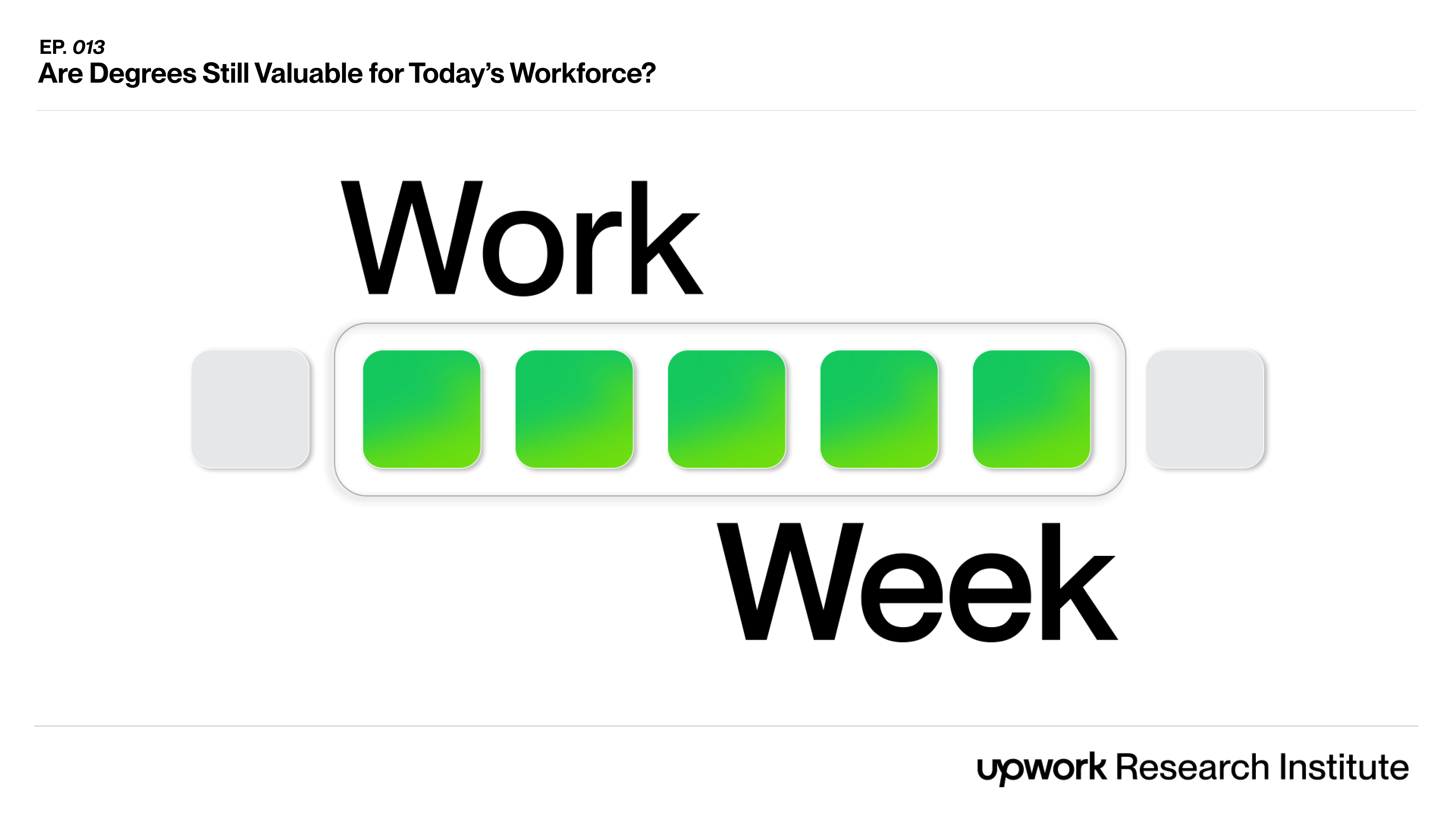


.png)

-p-500.jpg.png)

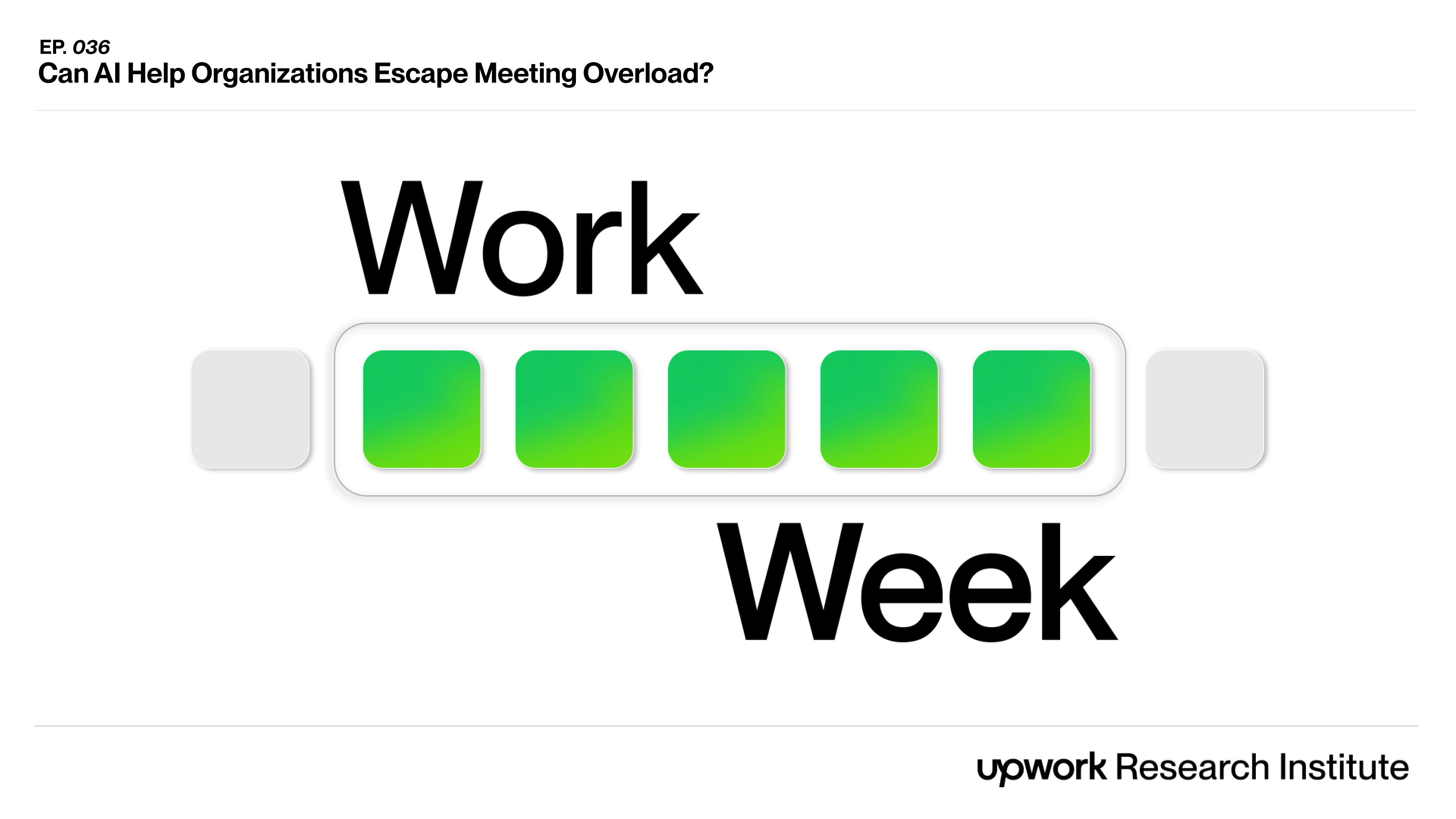

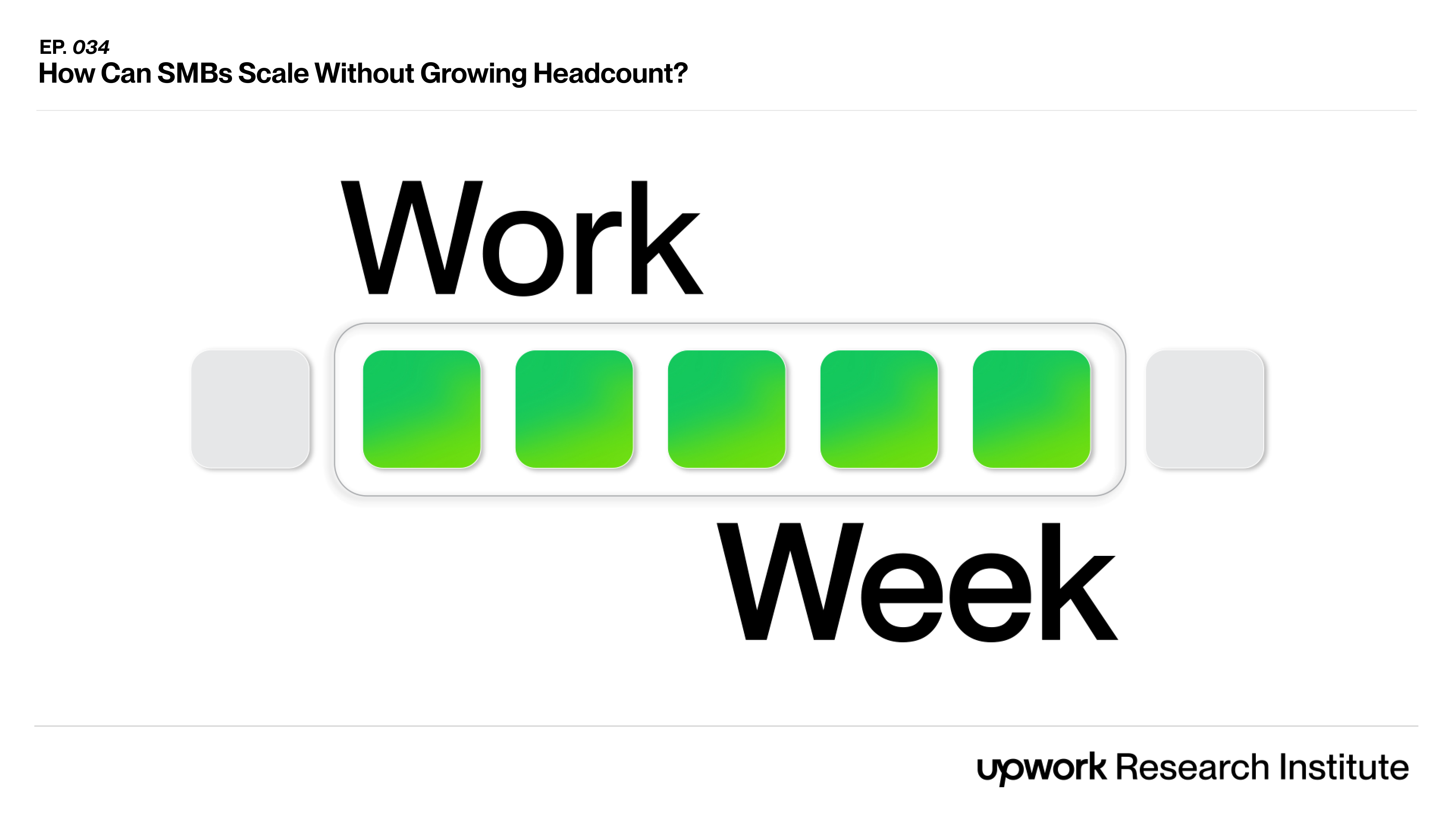
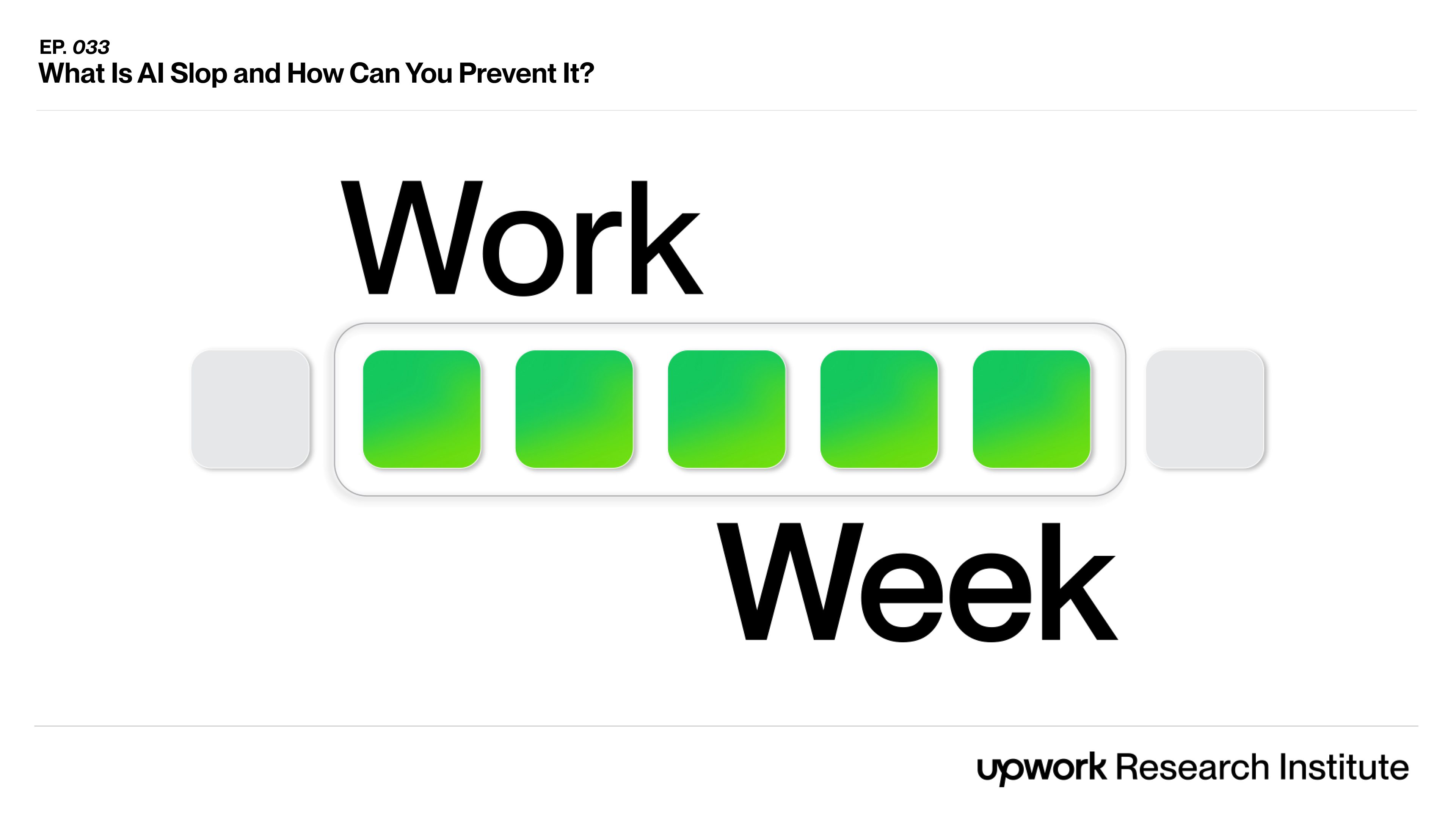
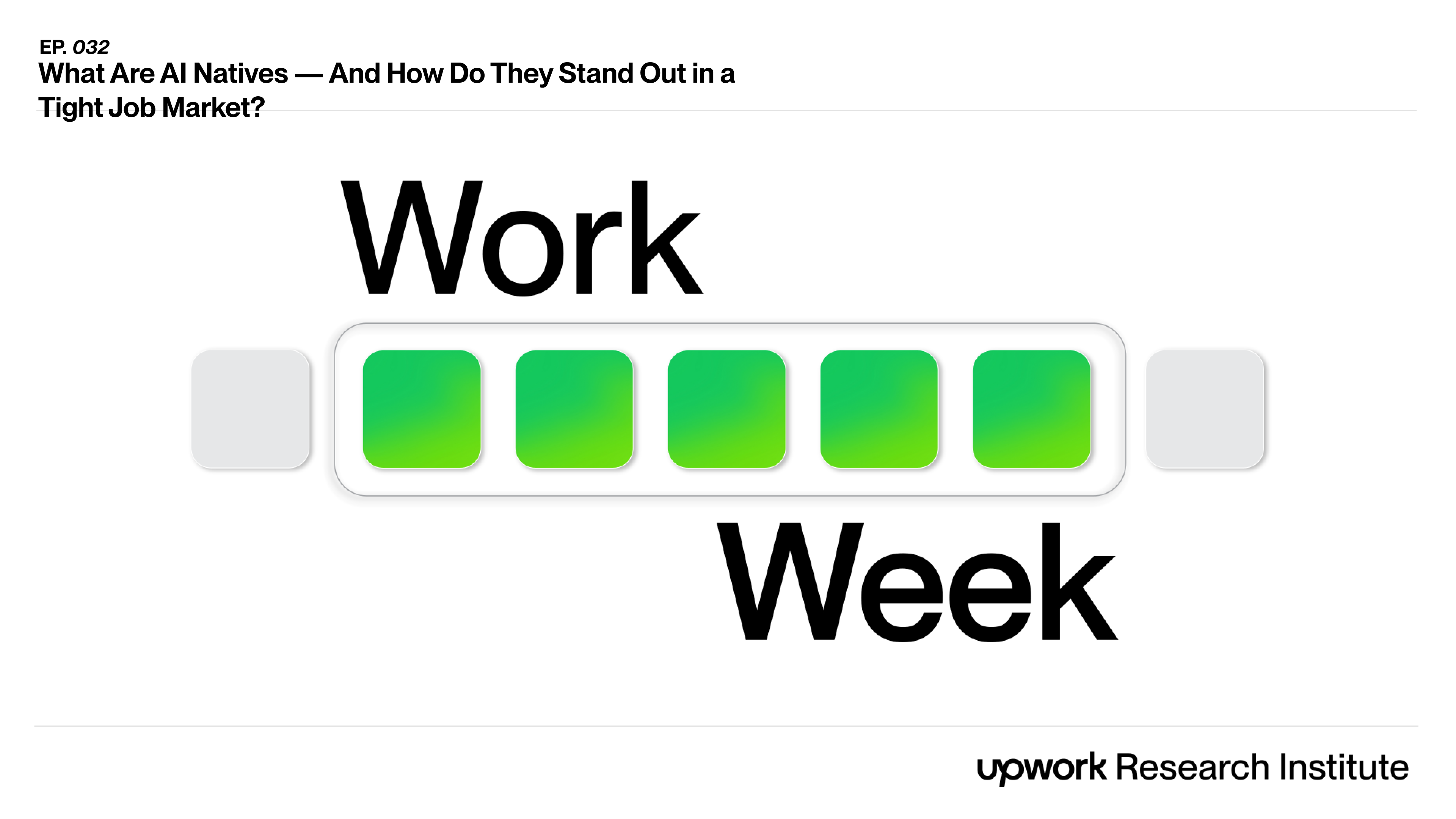
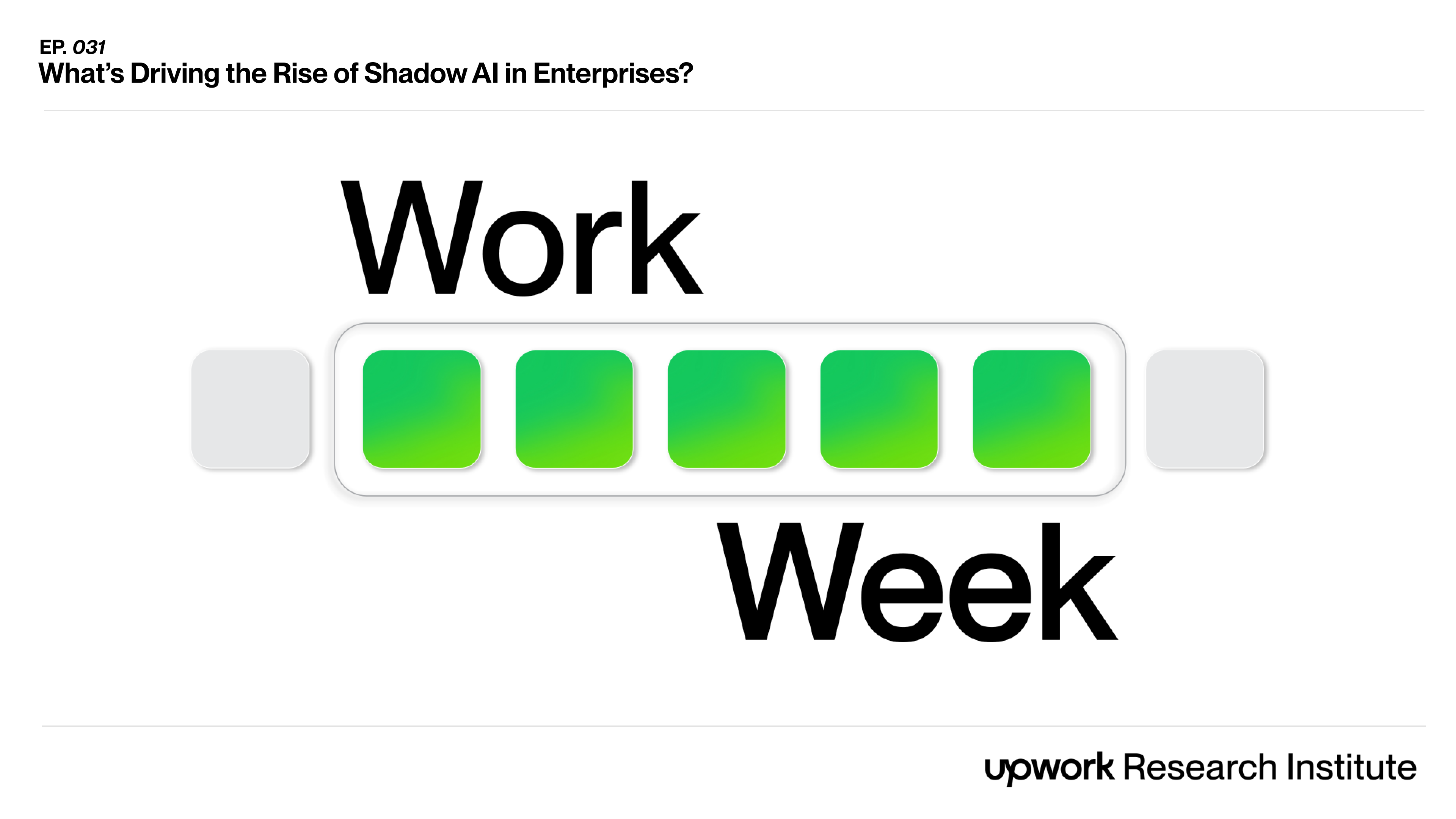
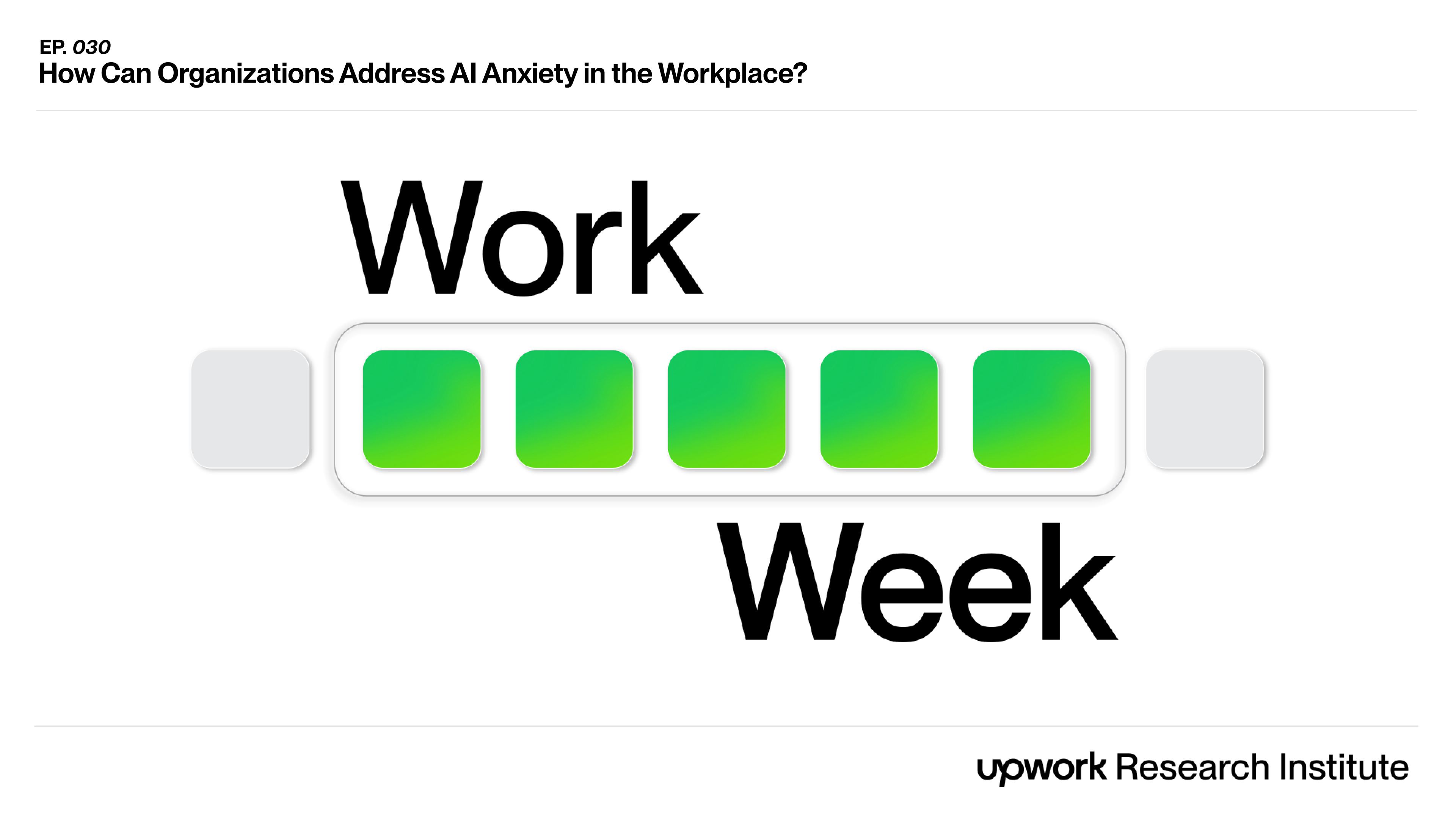
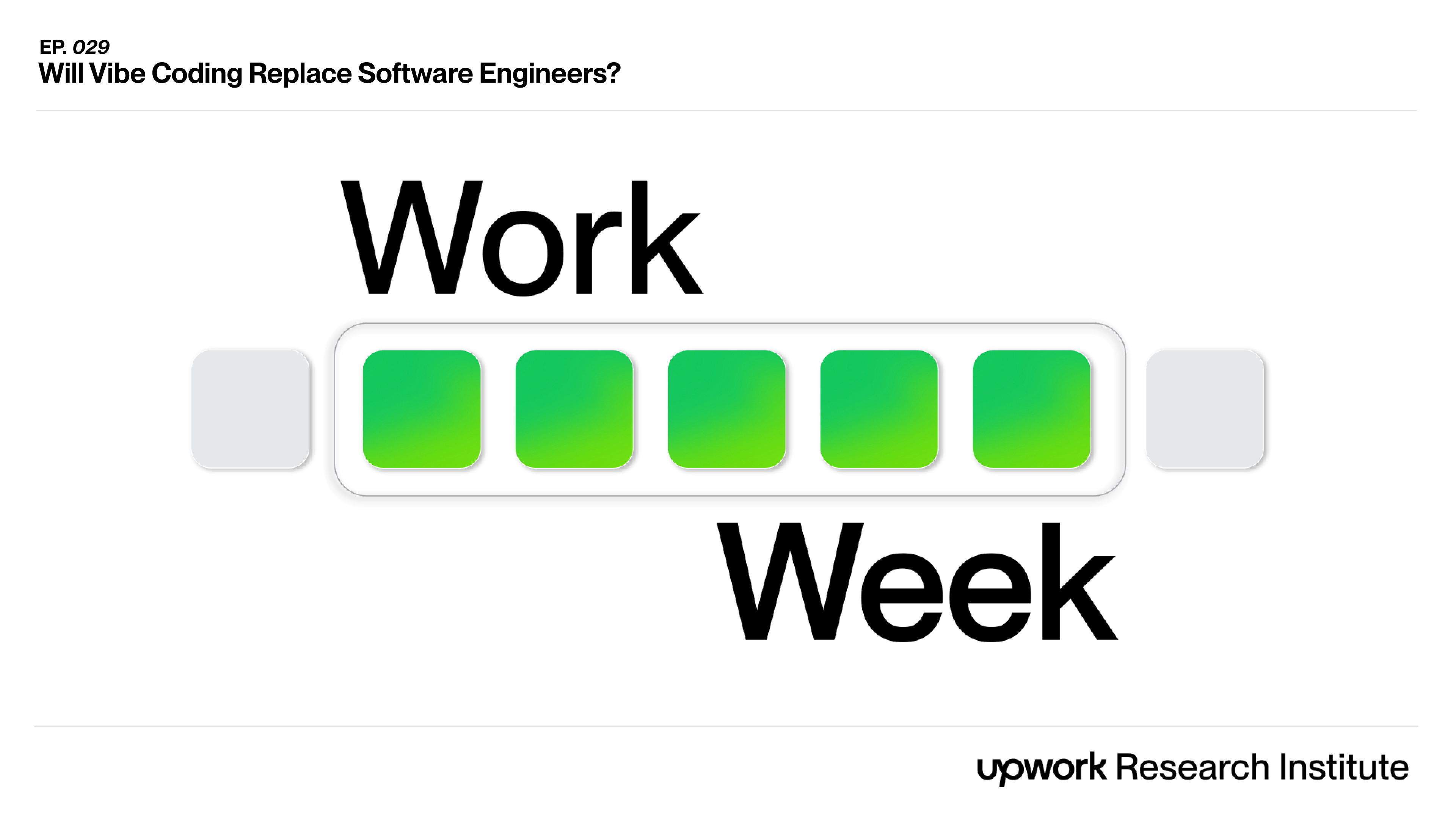
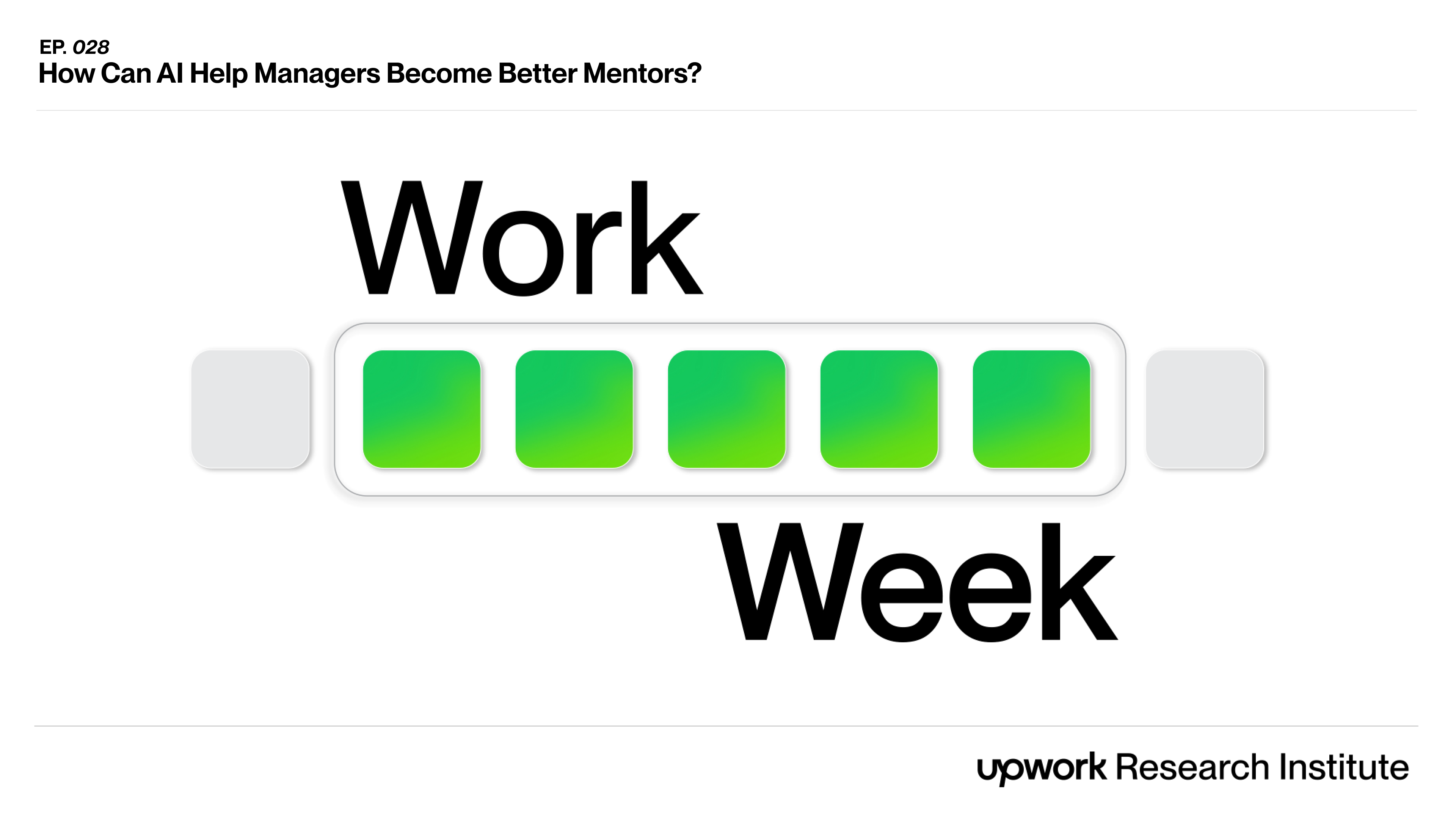

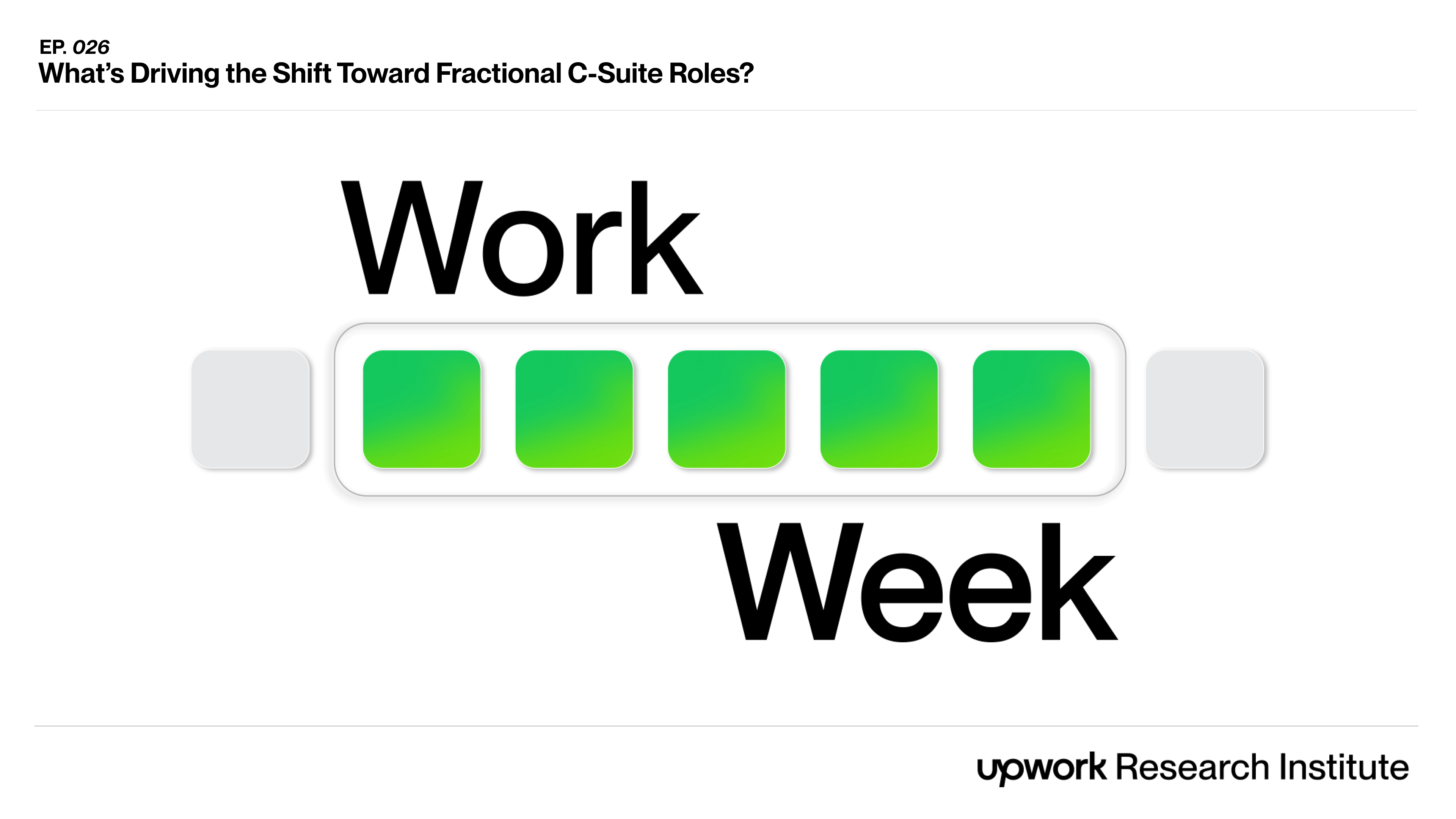
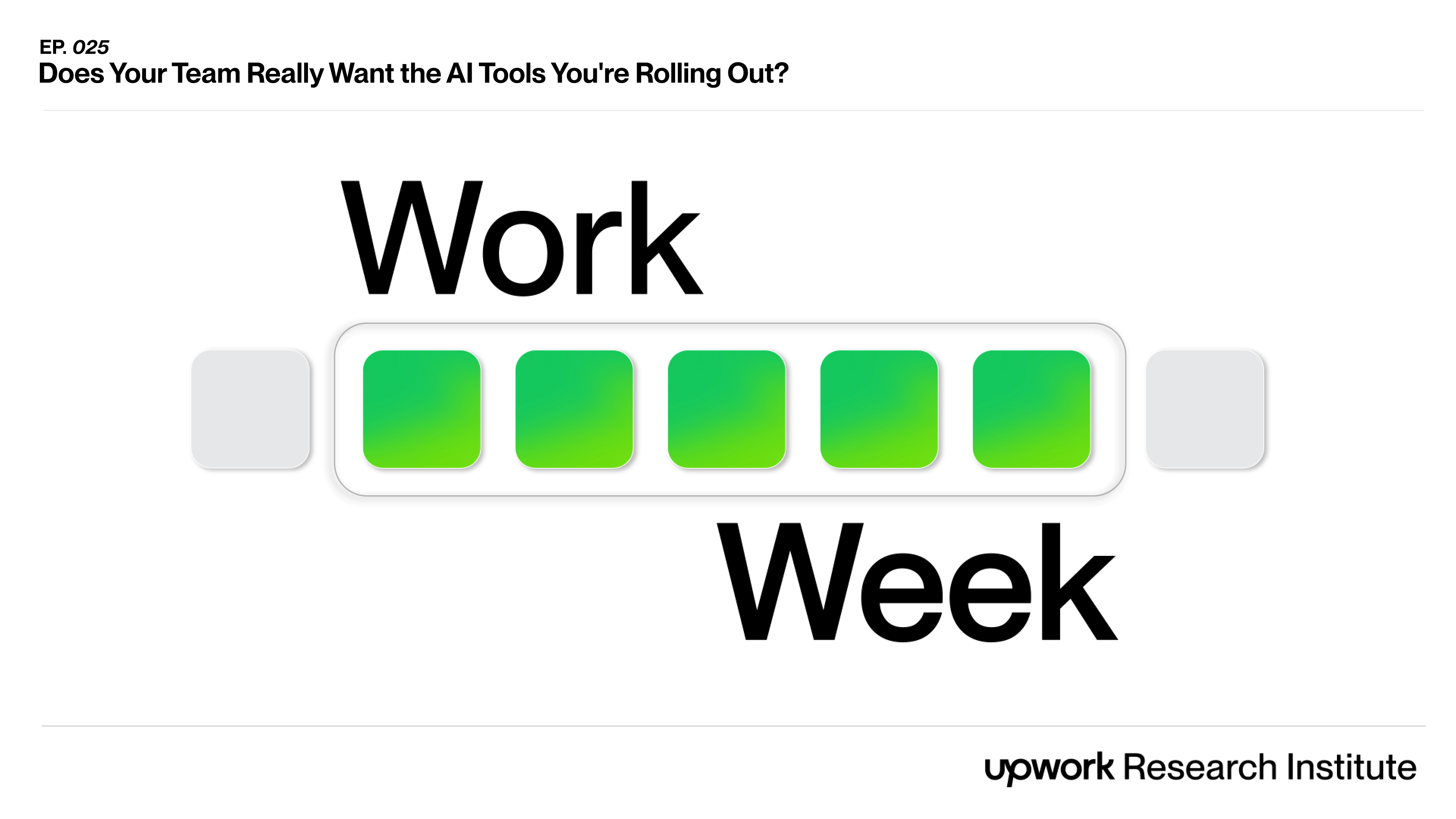
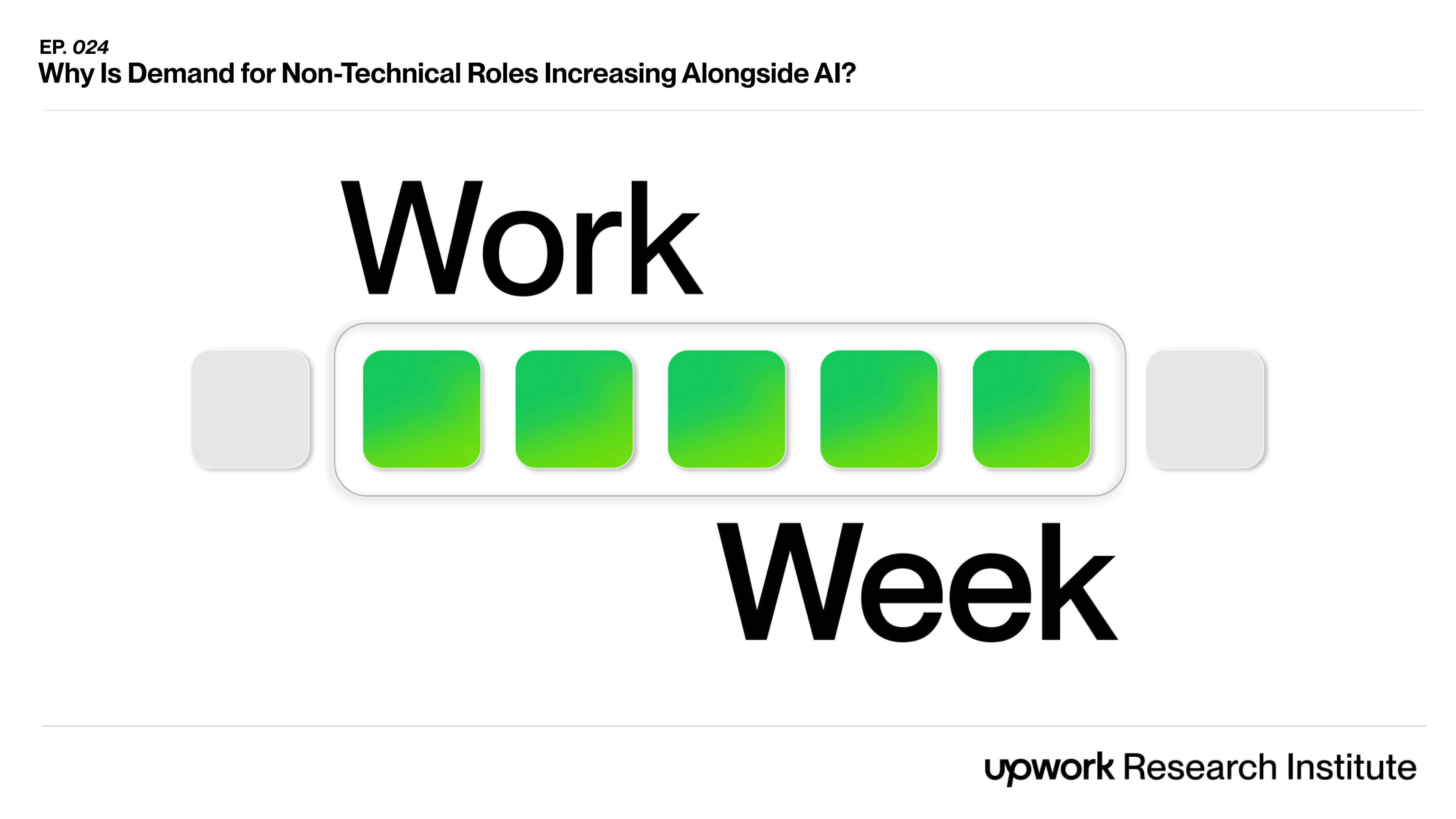
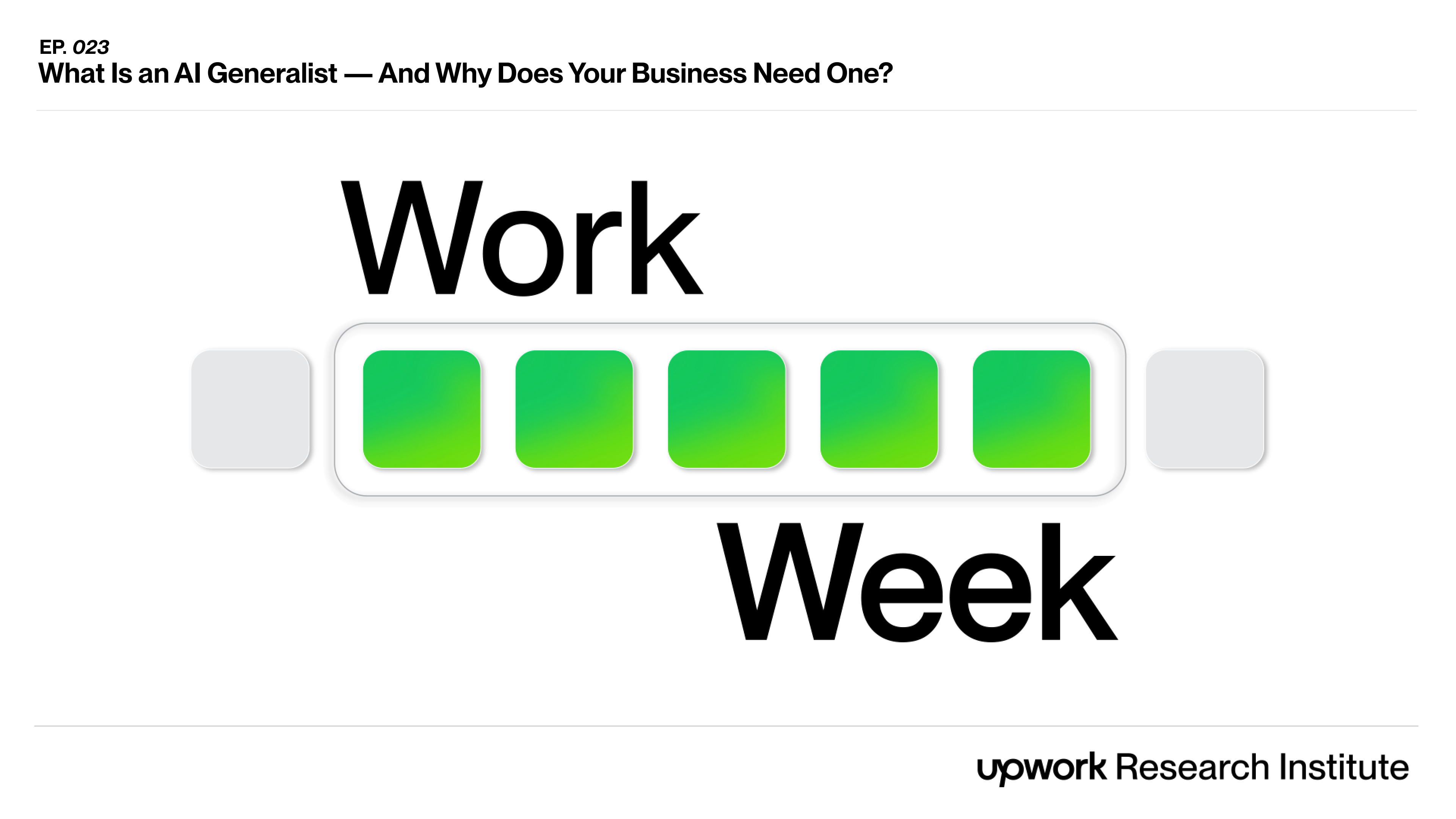
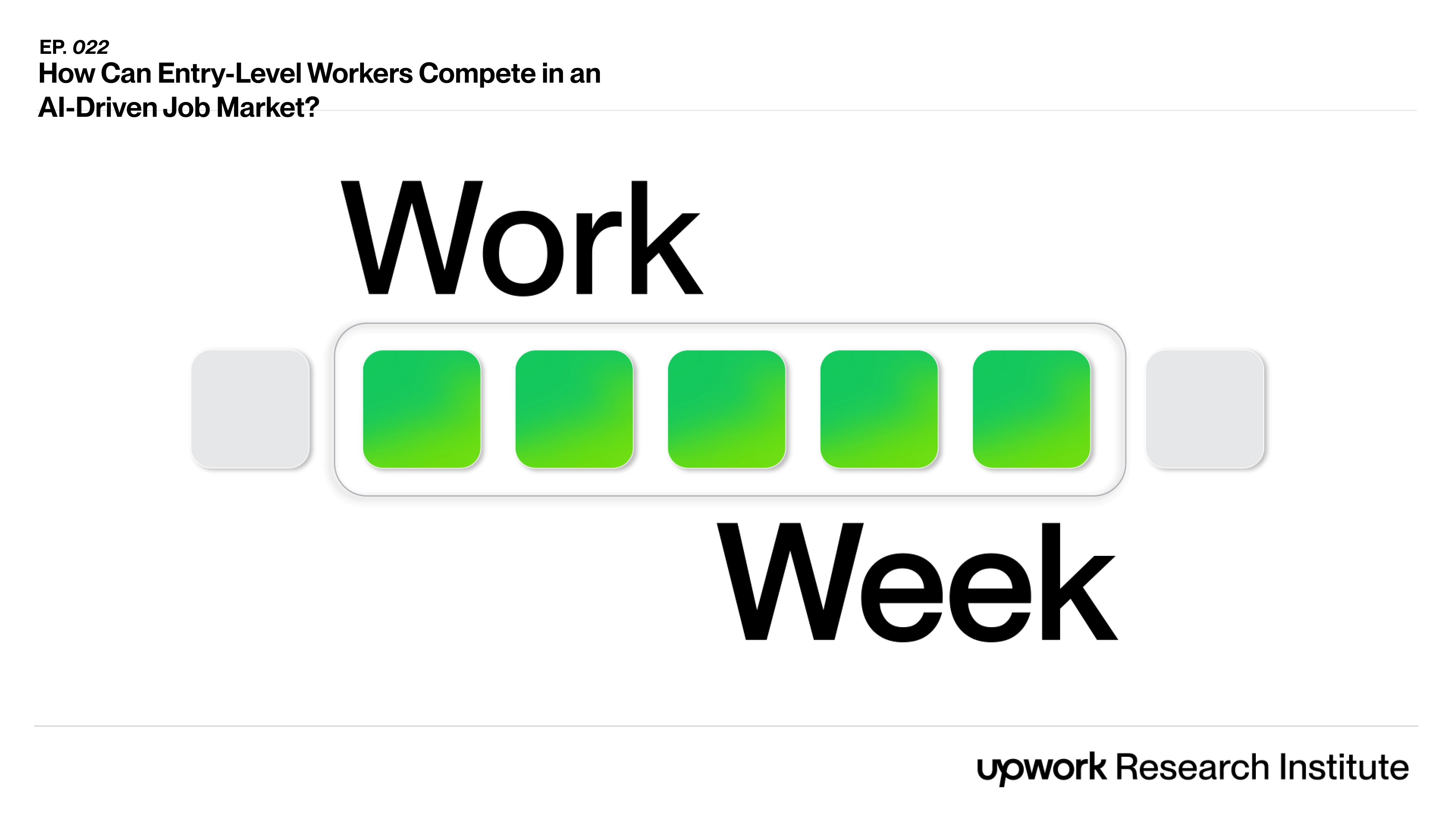

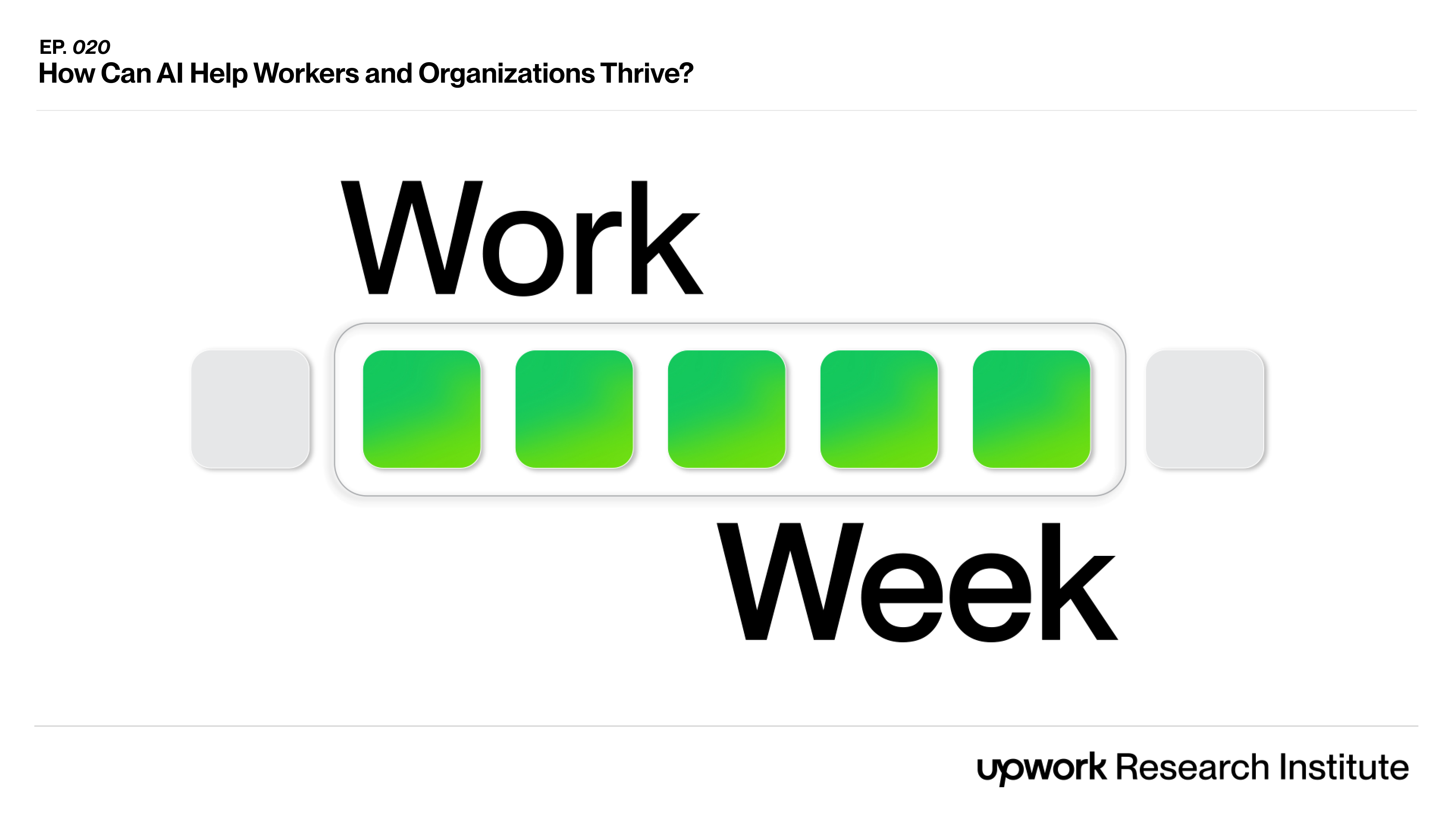
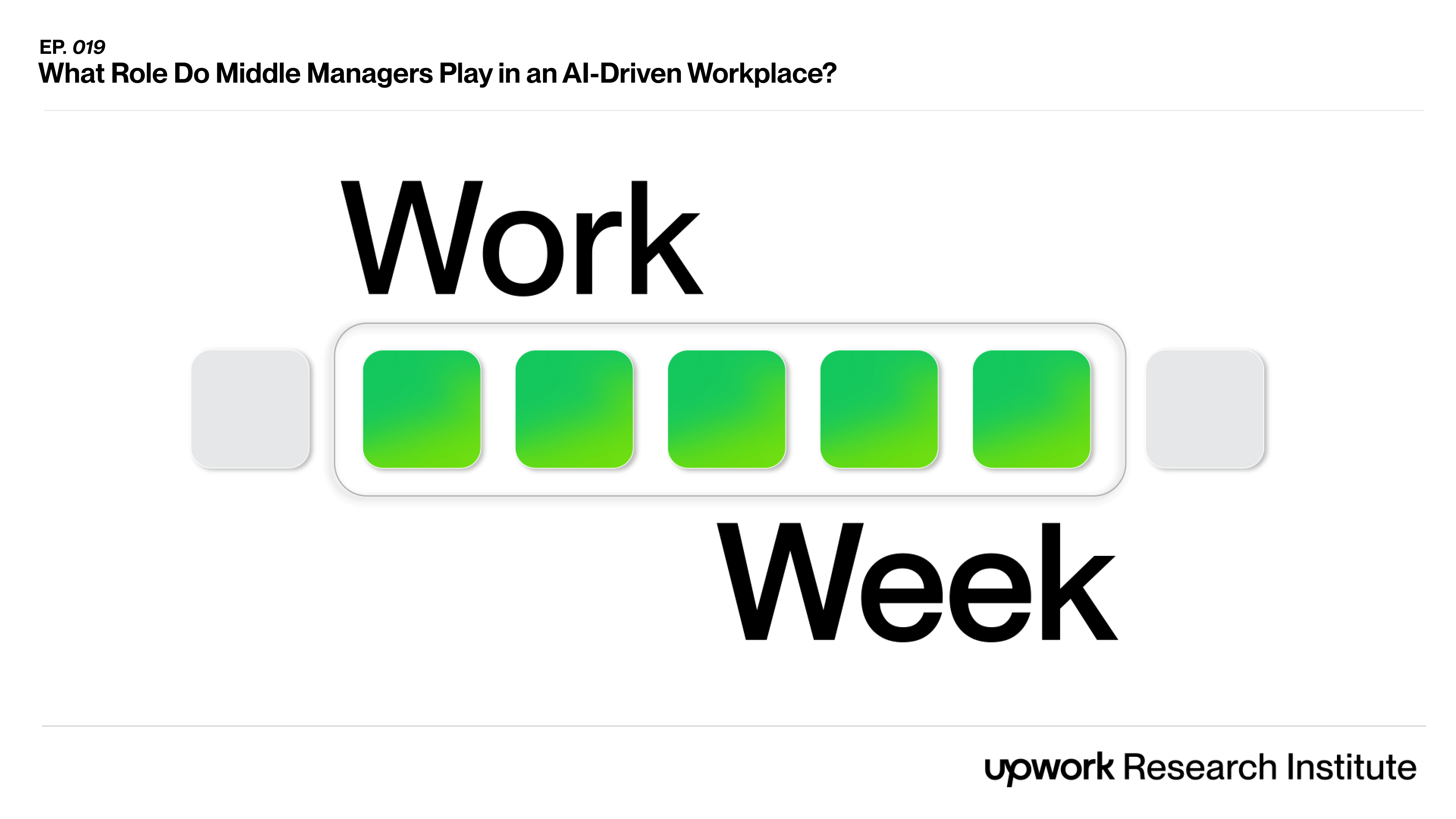
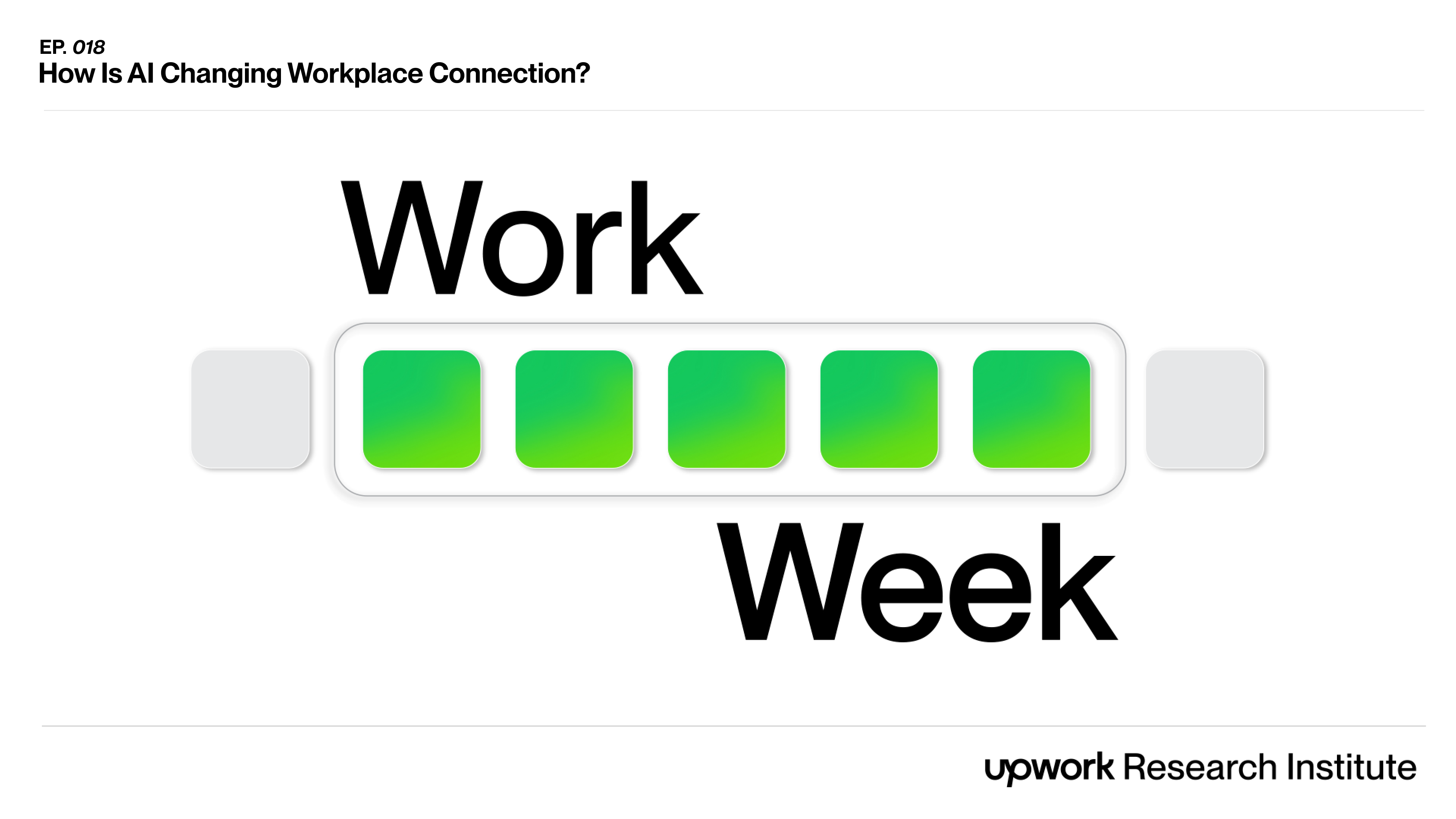

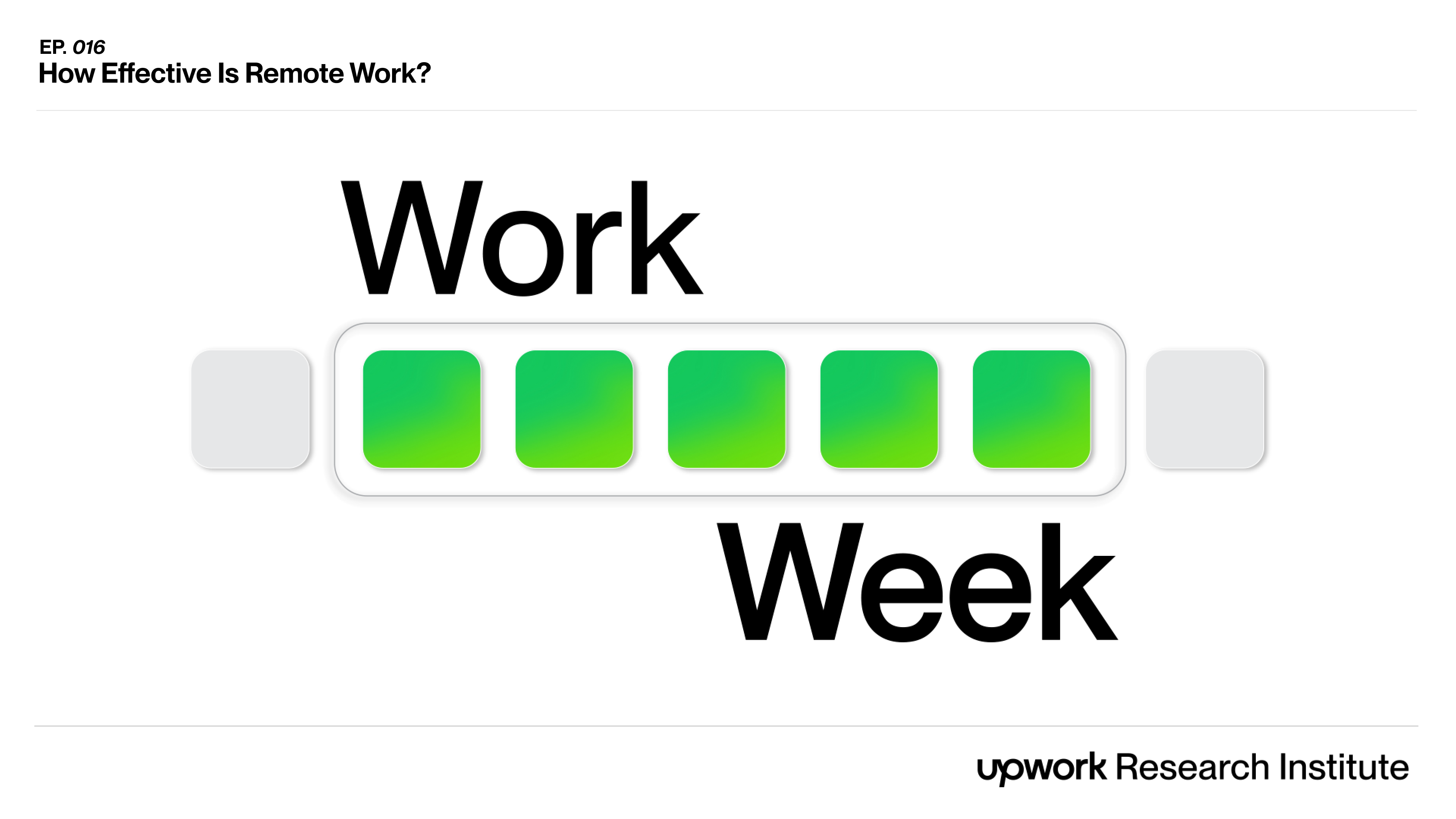
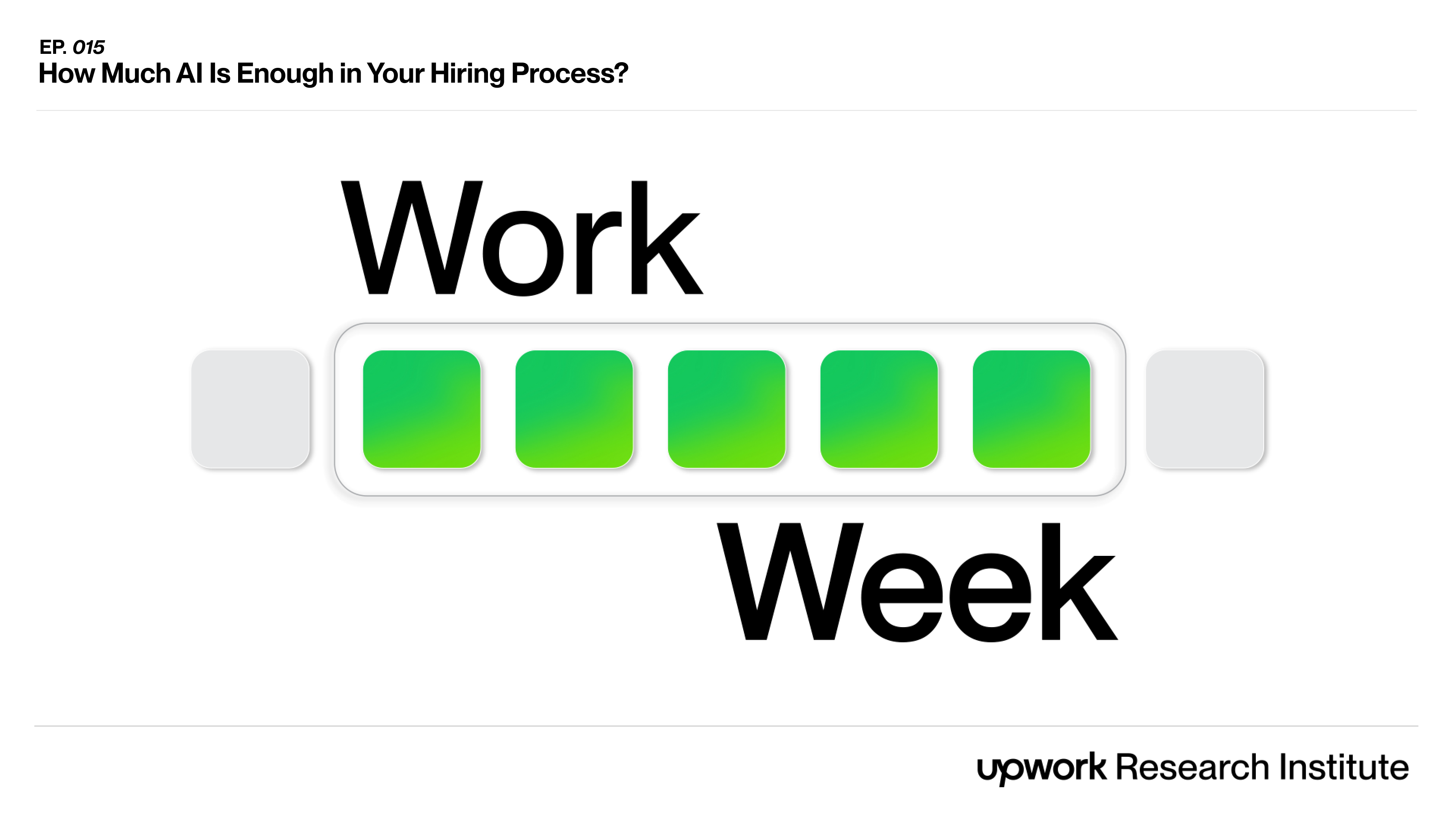

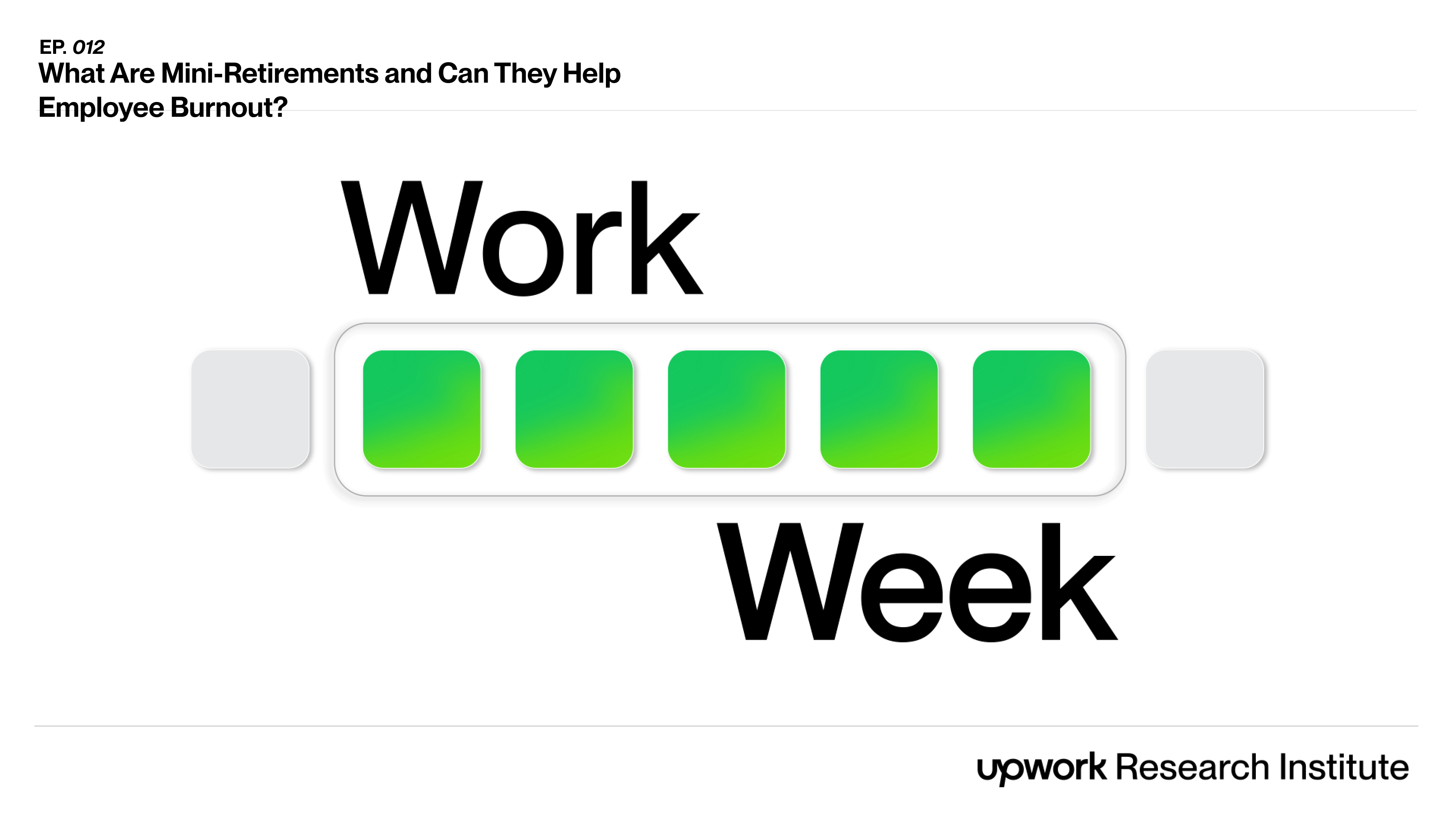
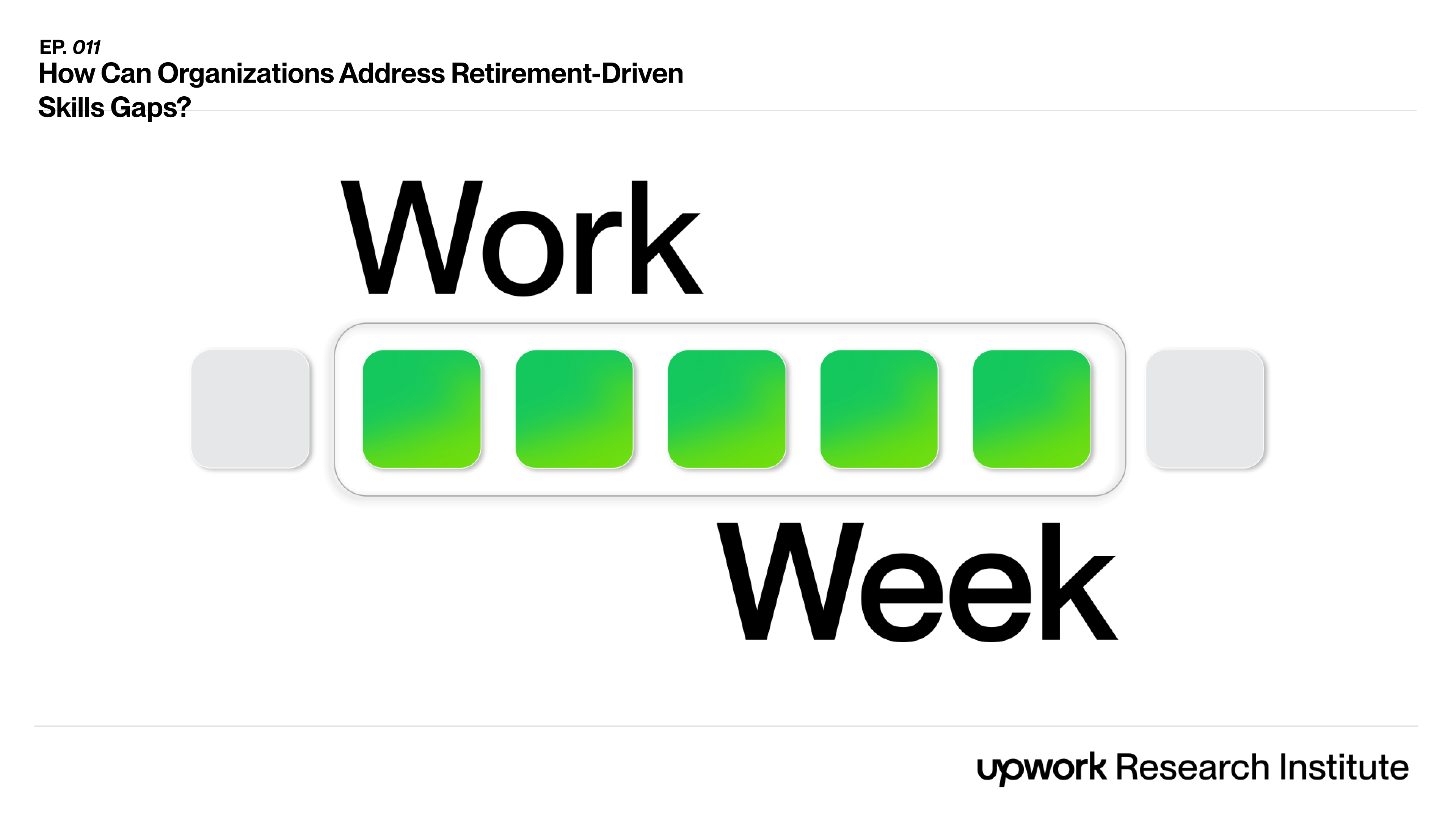
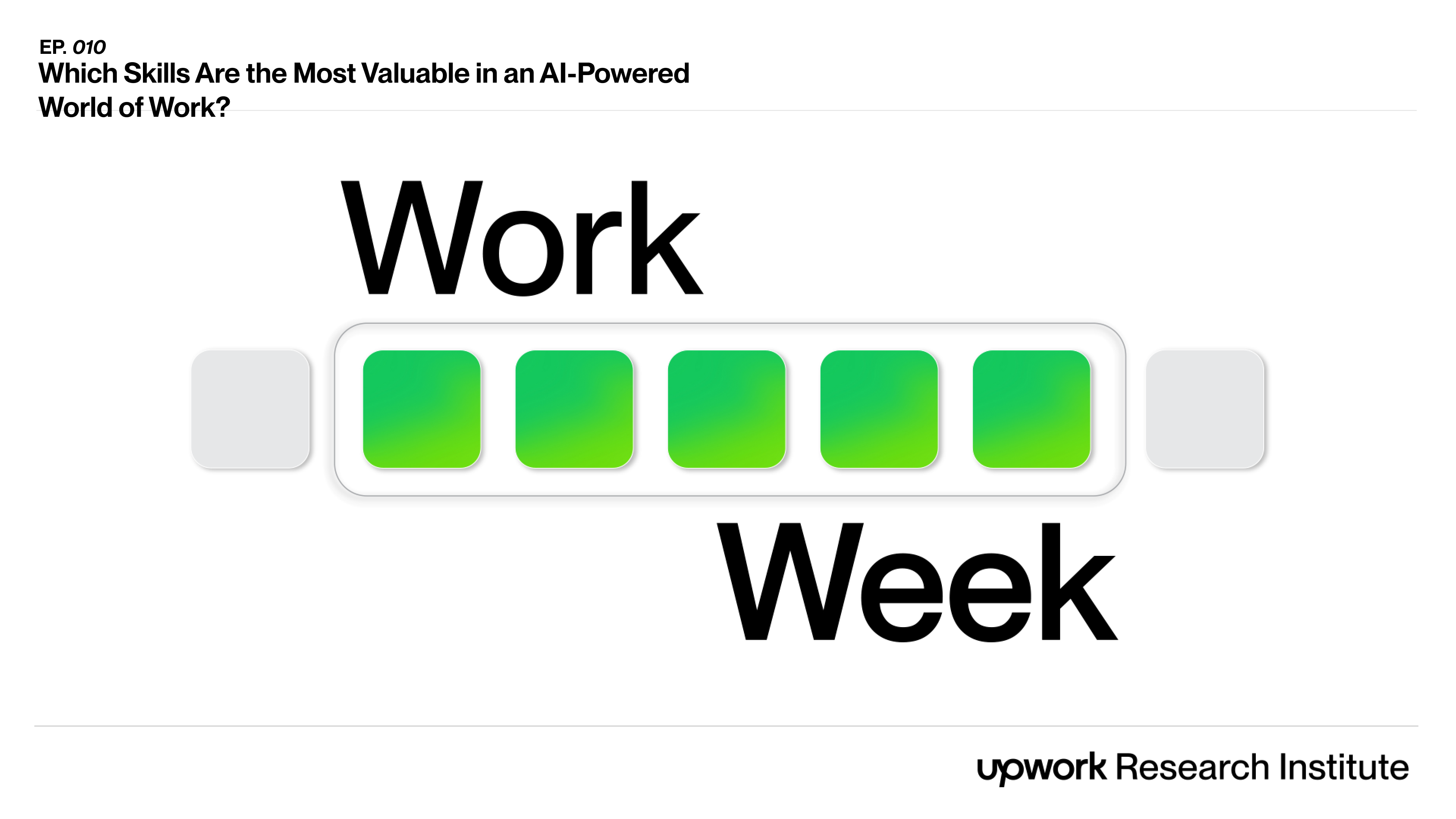
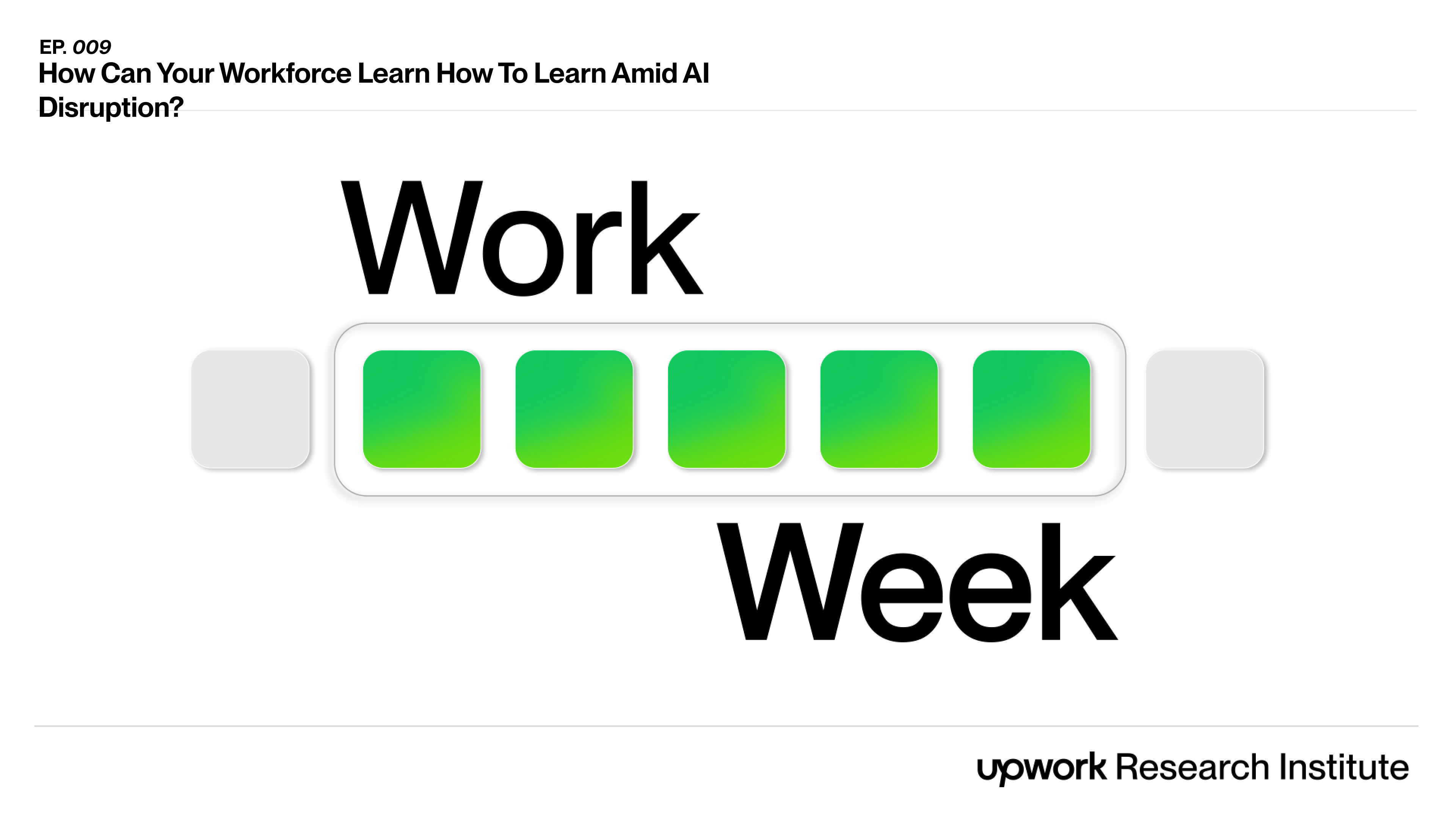
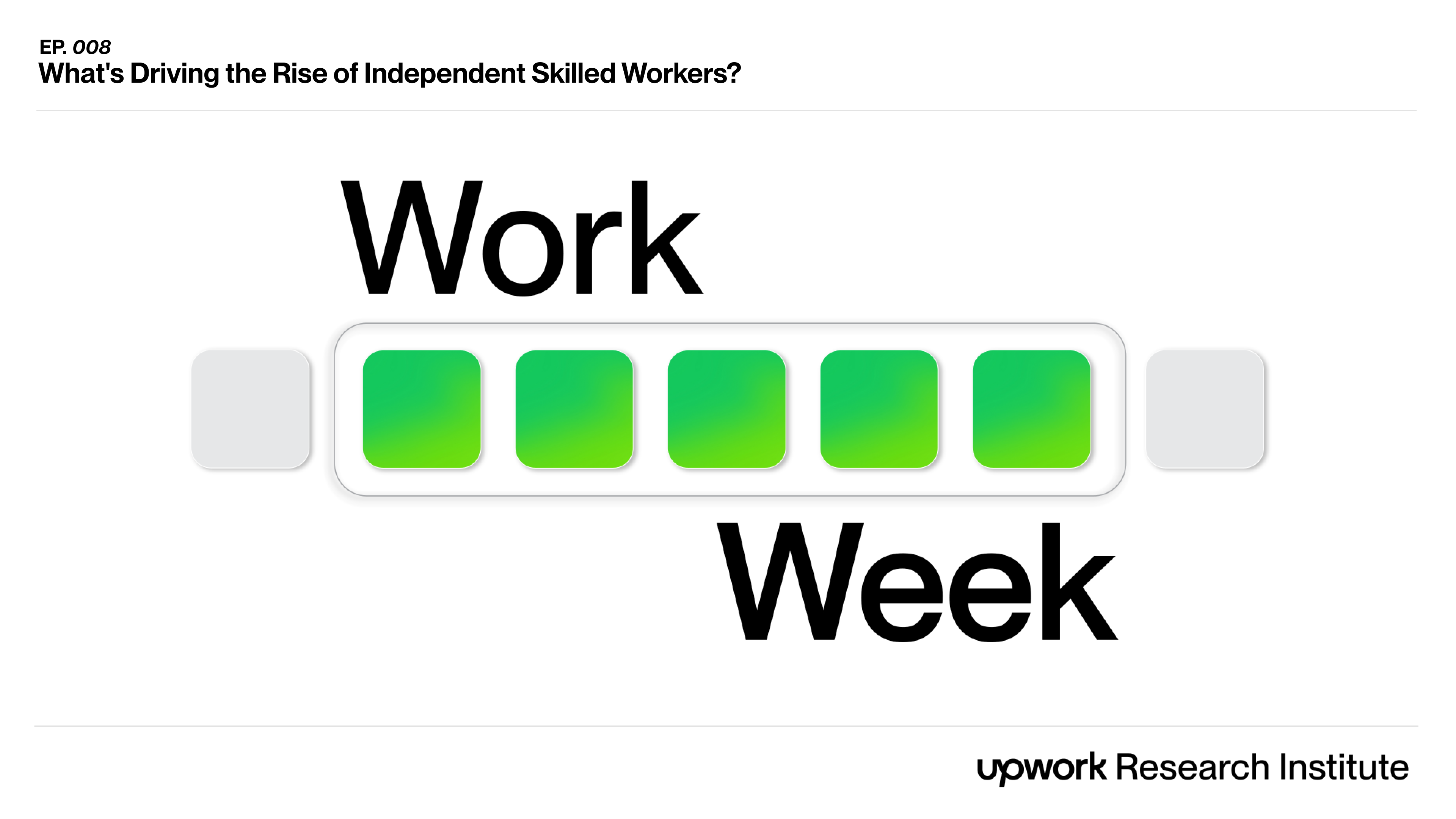
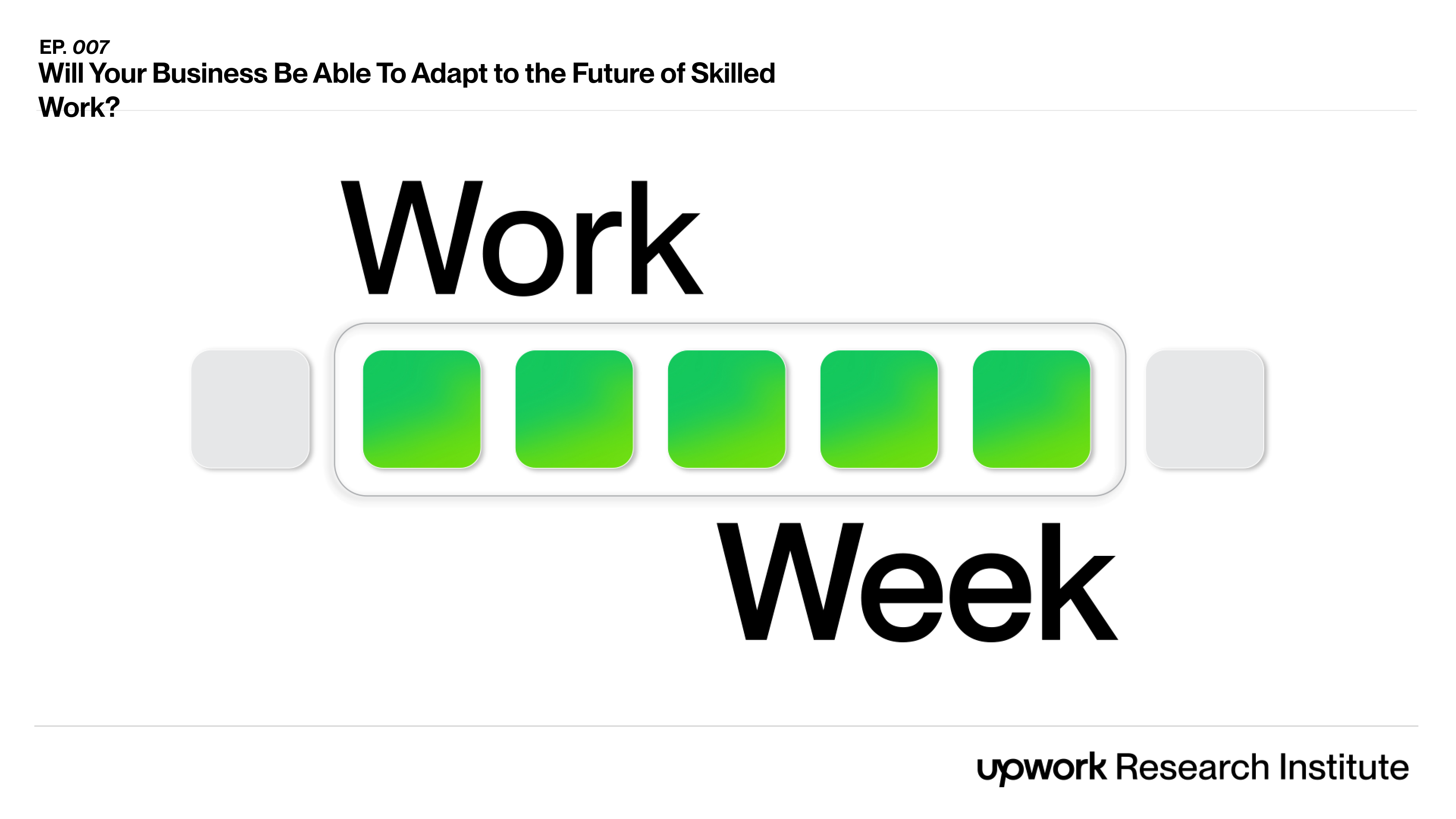
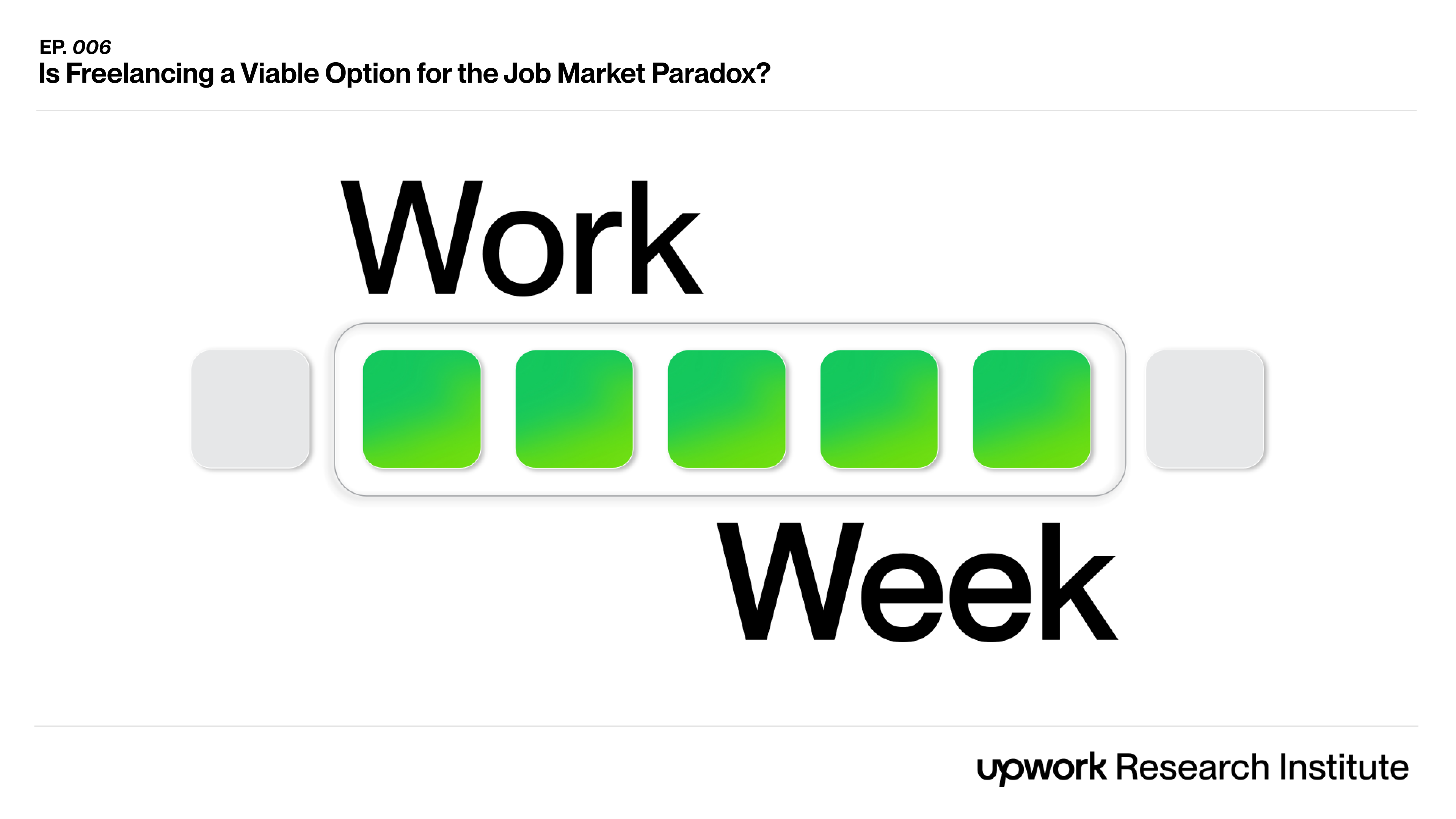
.png)
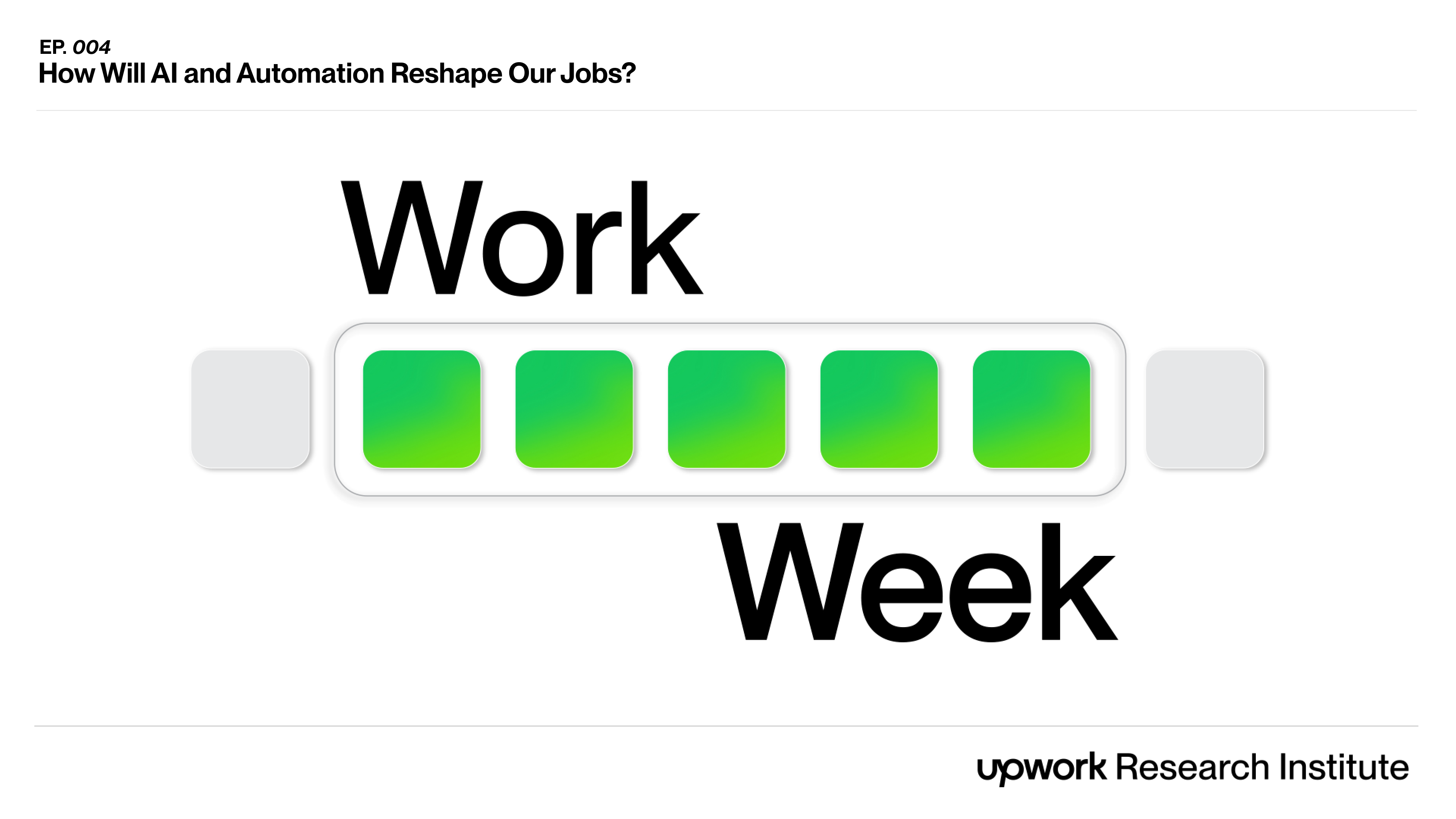

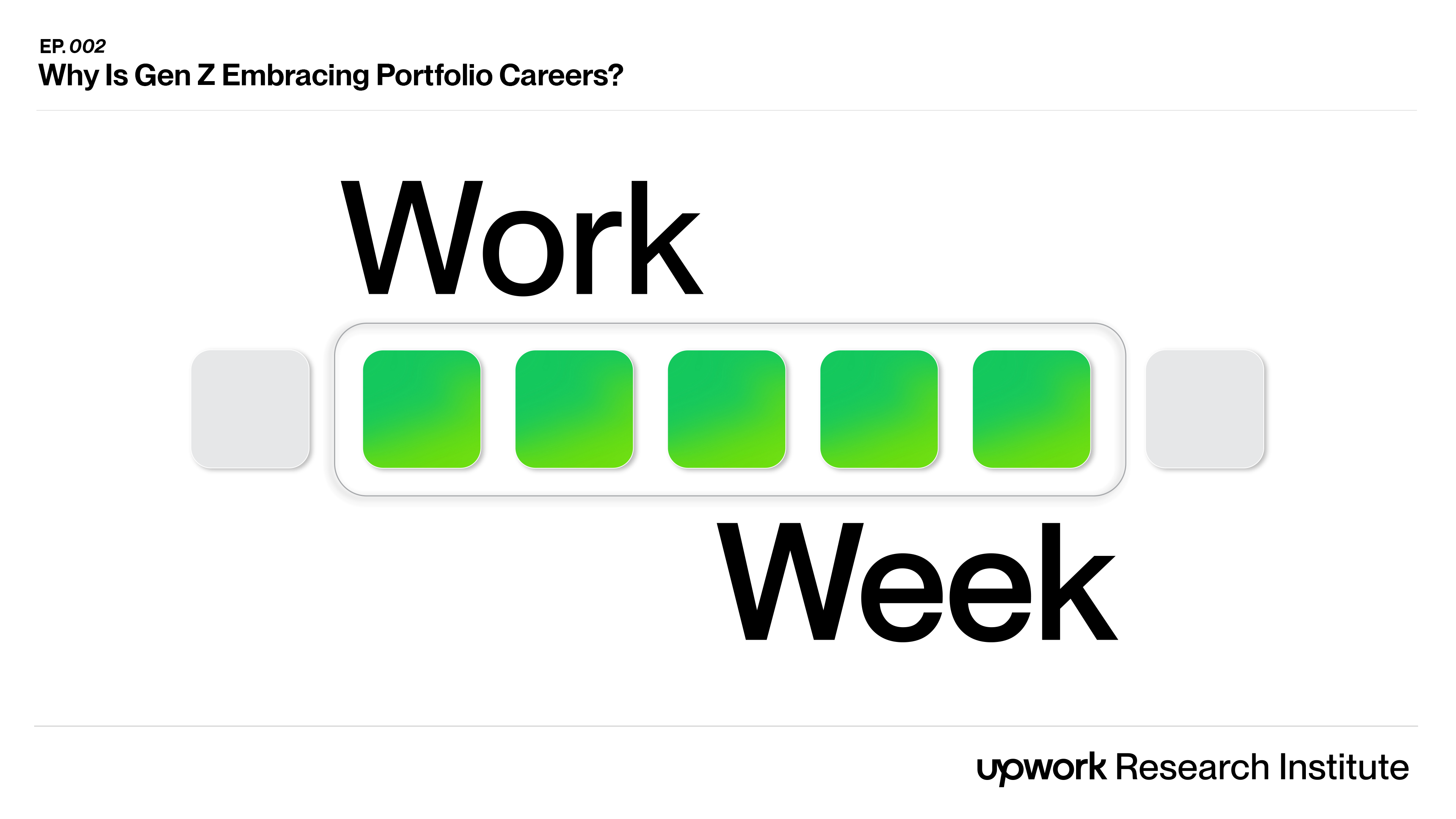
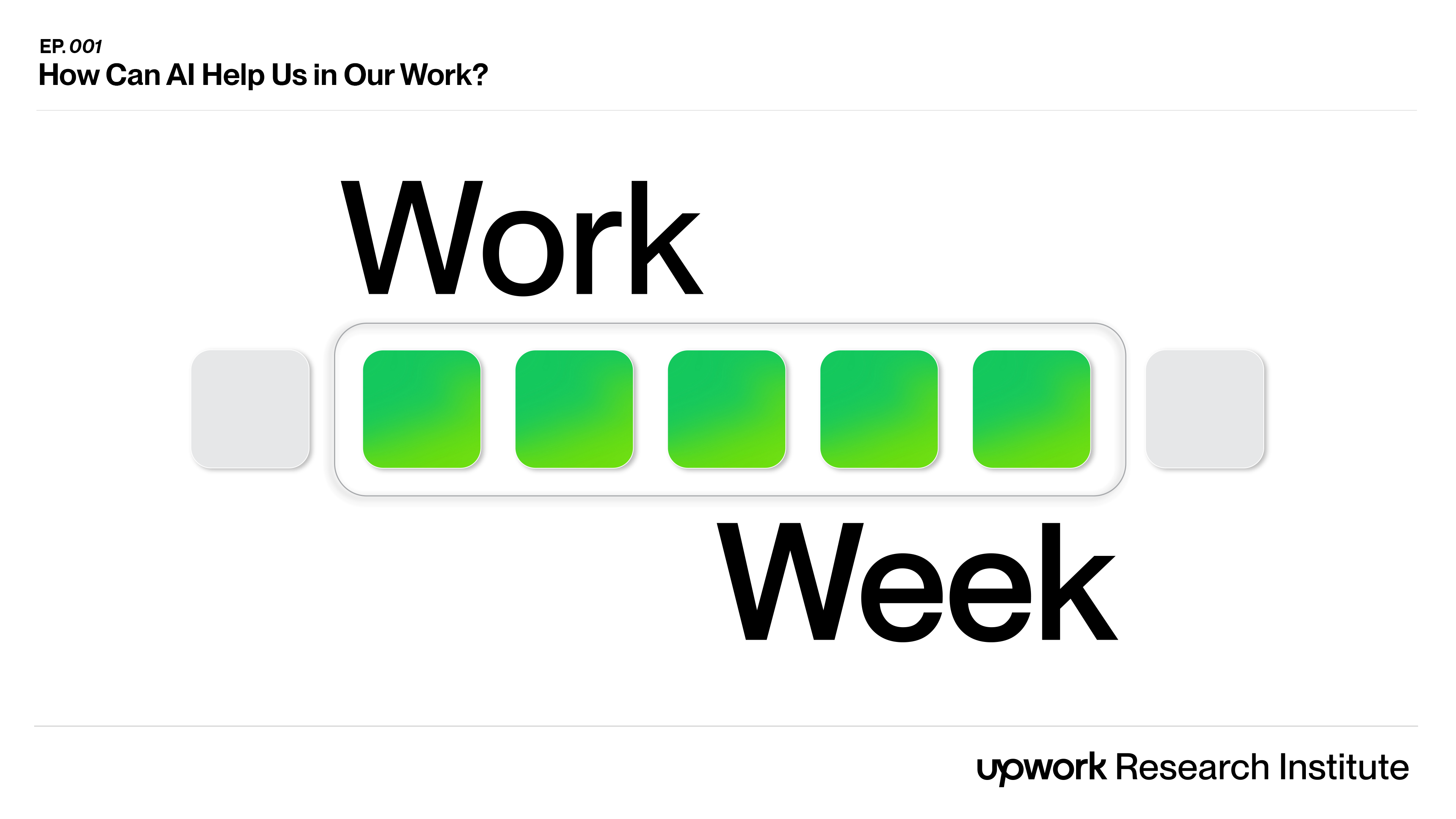
.jpg)